Translation seminar series
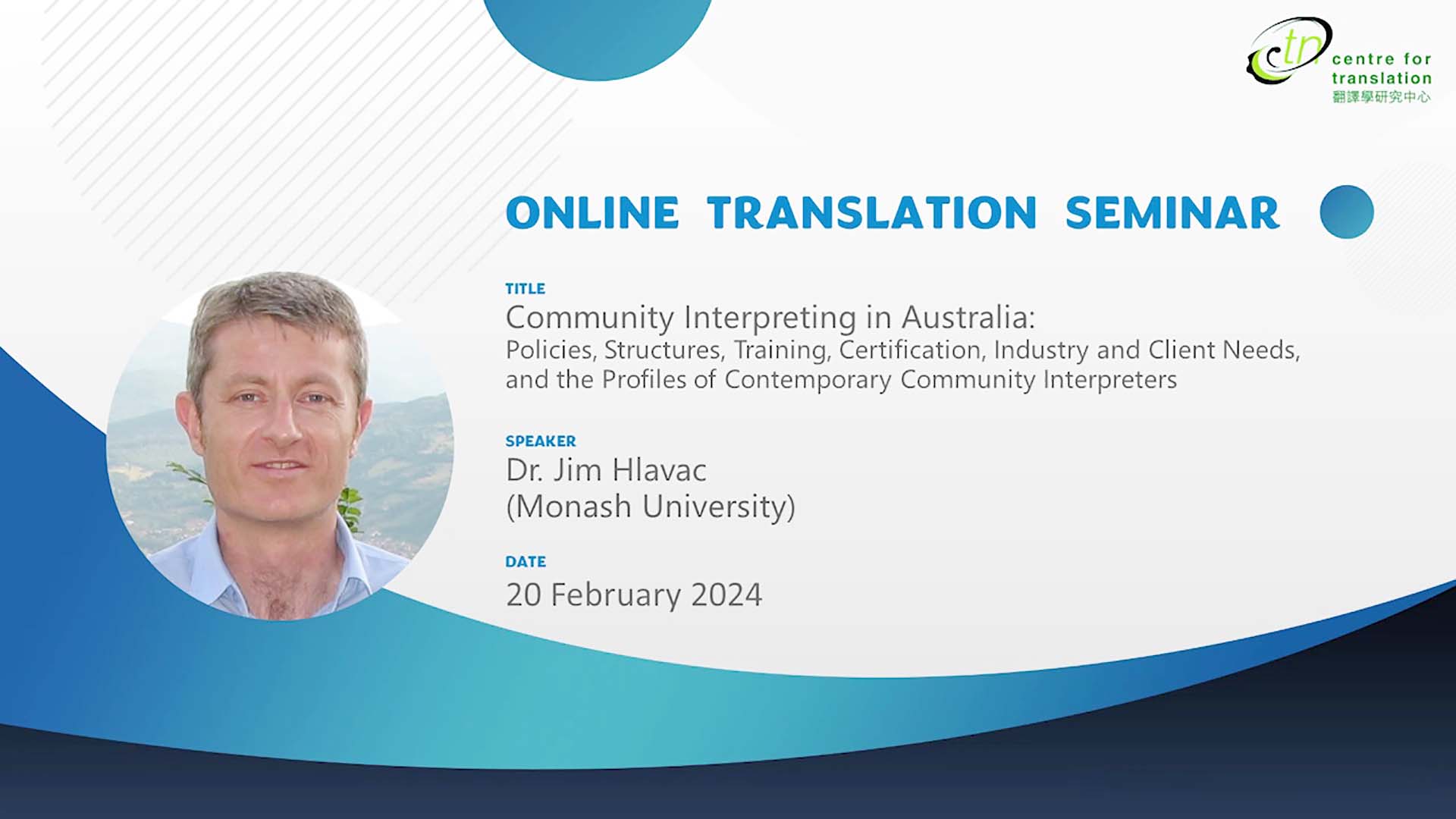
Community Interpreting in Australia: Policies, Structures, Training, Certification, Industry and Client Needs, and the Profiles of Contemporary Community Interpreters
2024 | 117 mins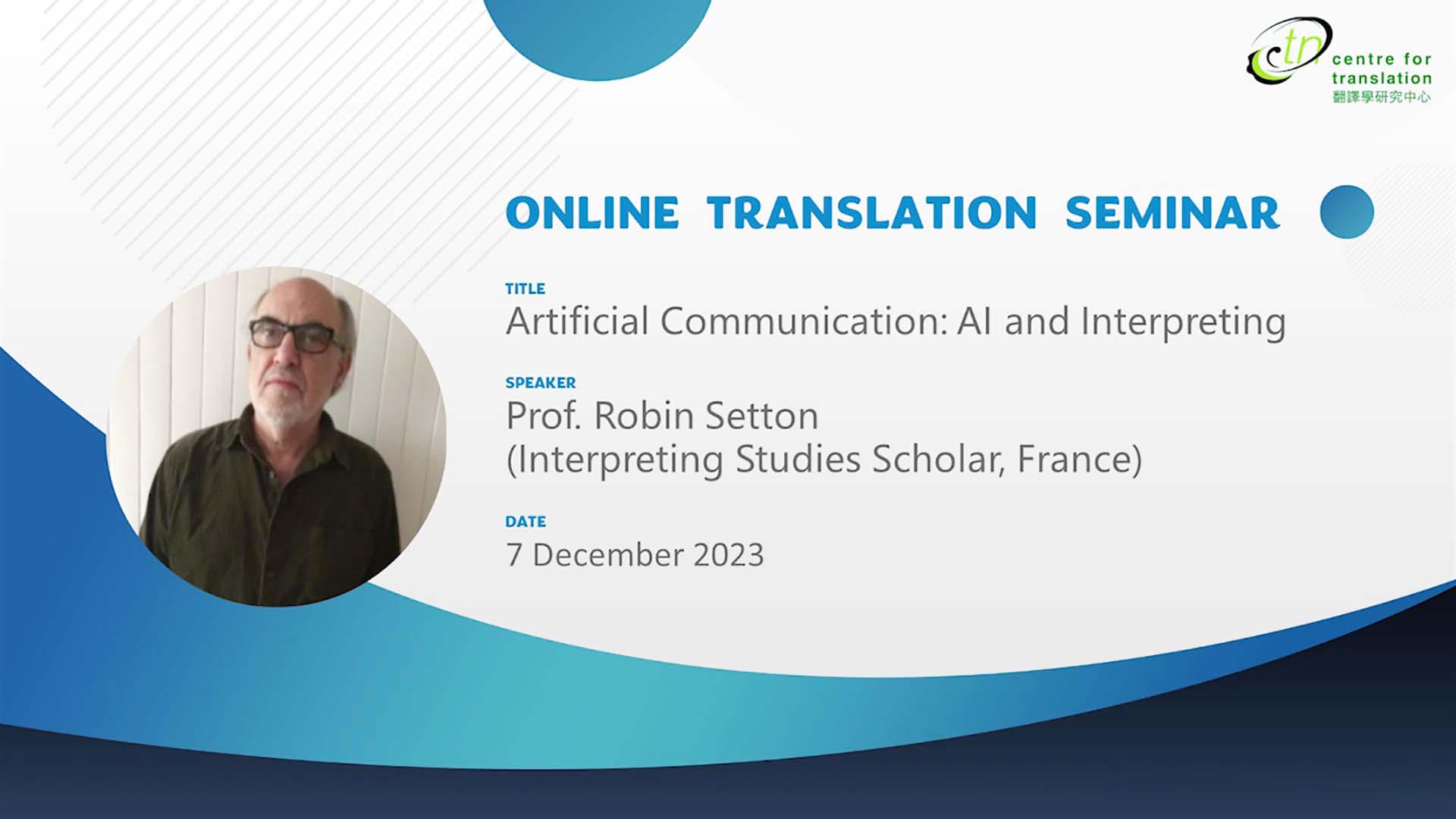
Artificial Communication: AI and Interpreting
2023 | 124 mins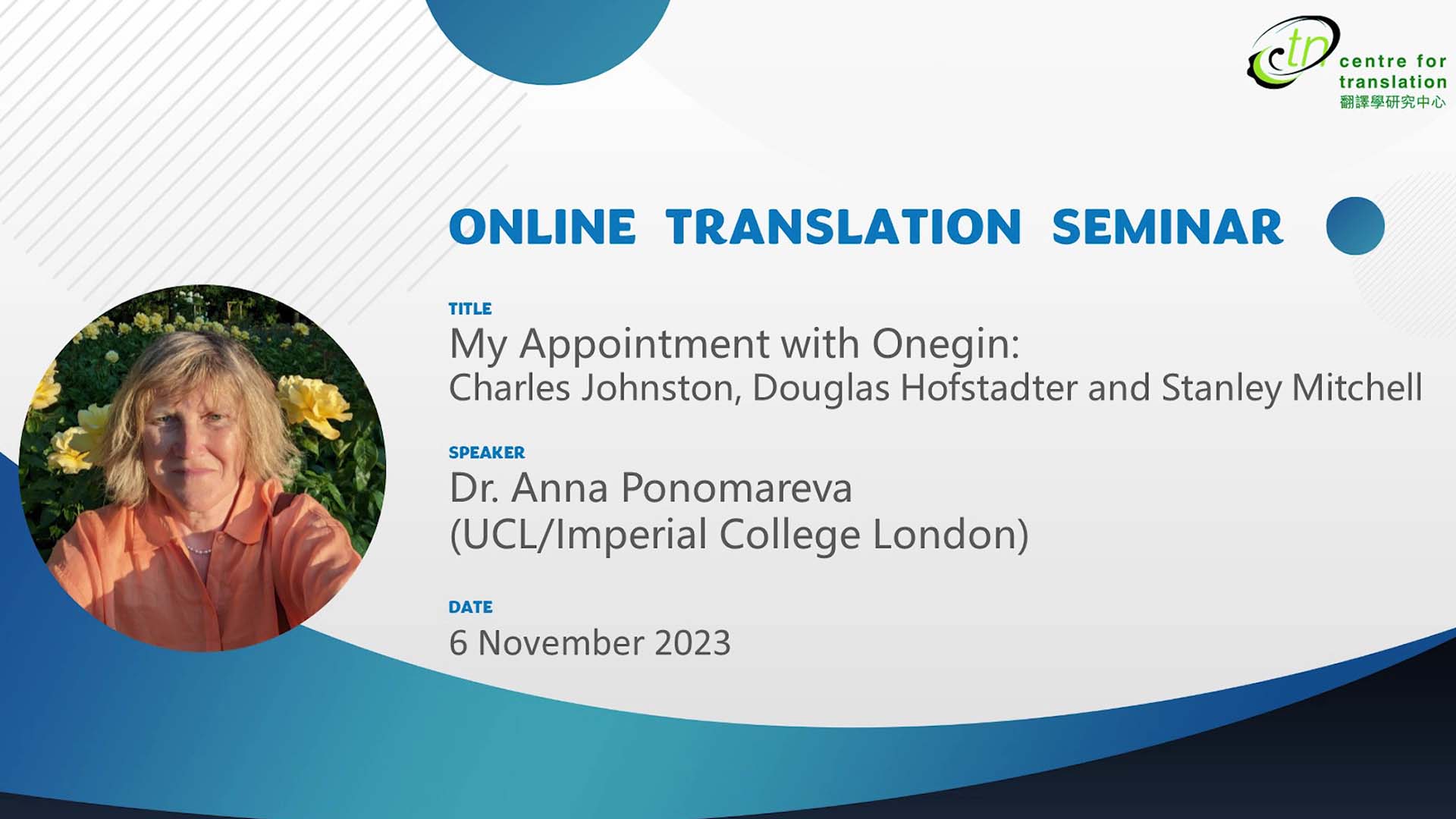
My Appointment with Onegin: Charles Johnston, Douglas Hofstadter and Stanley Mitchell
2023 | 60 mins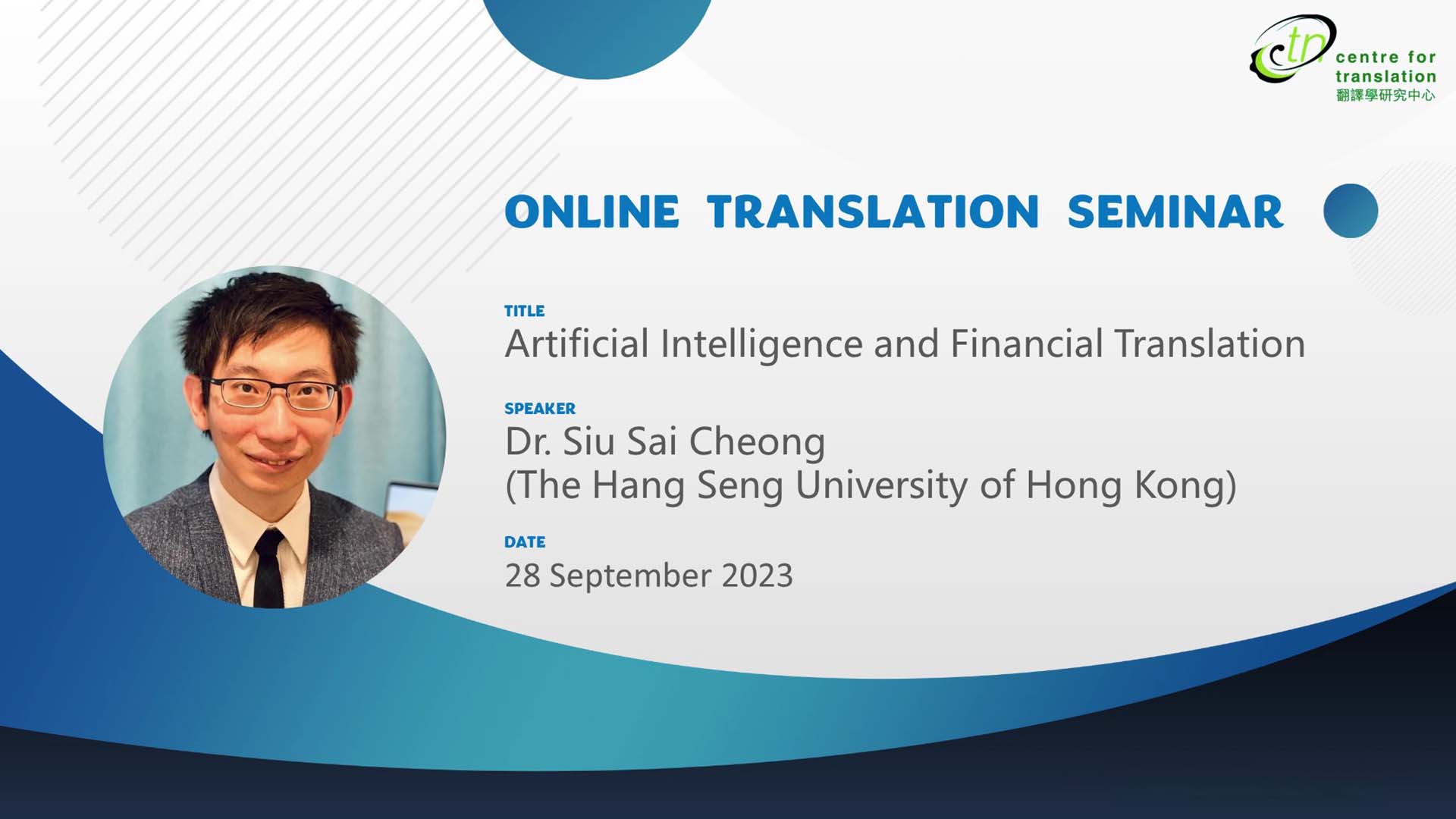
Artificial Intelligence and Financial Translation
2023 | 121 mins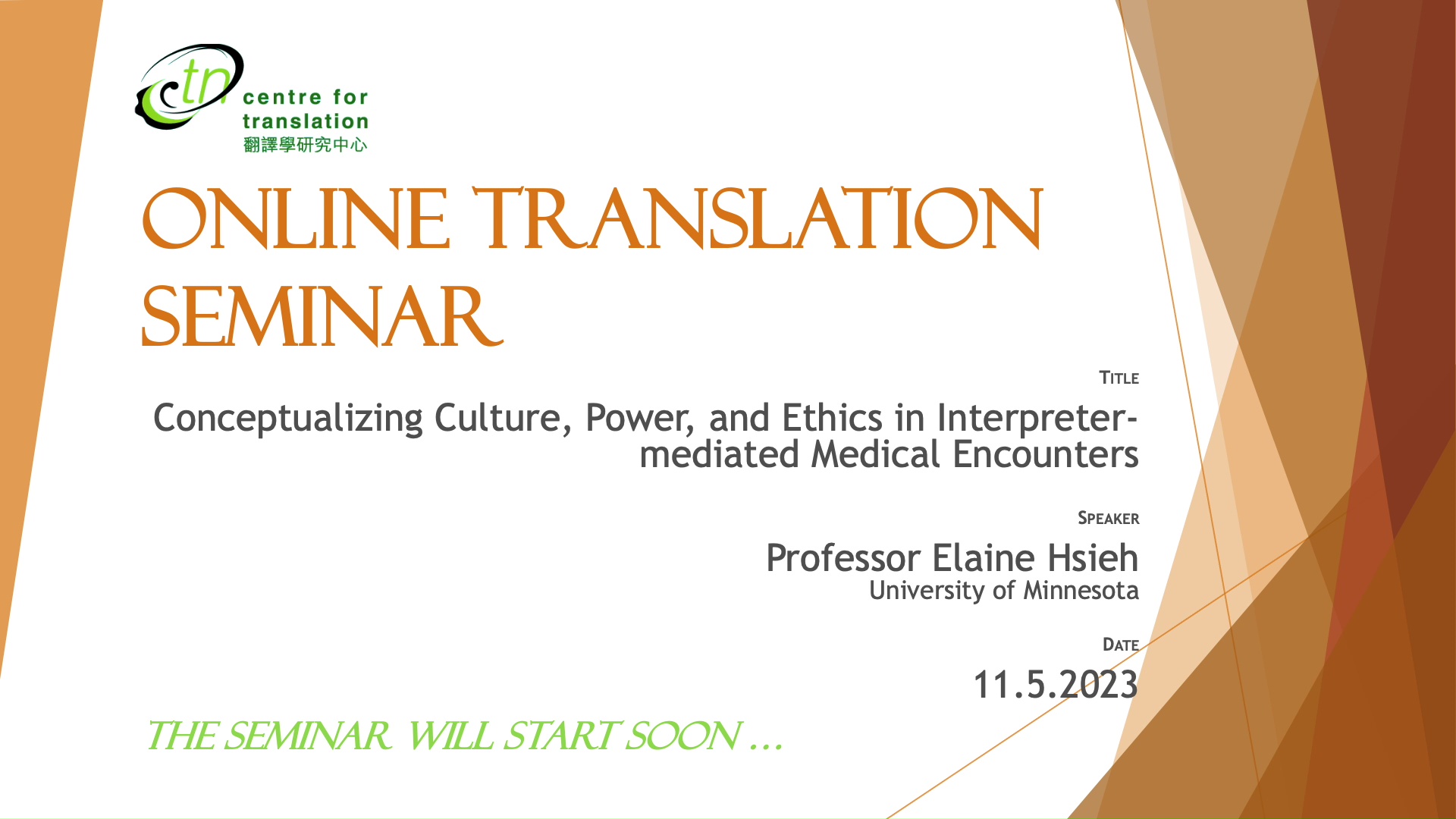
Conceptualizing Culture, Power, and Ethics in Interpreter-mediated Medical Encounters
2023 | 119 mins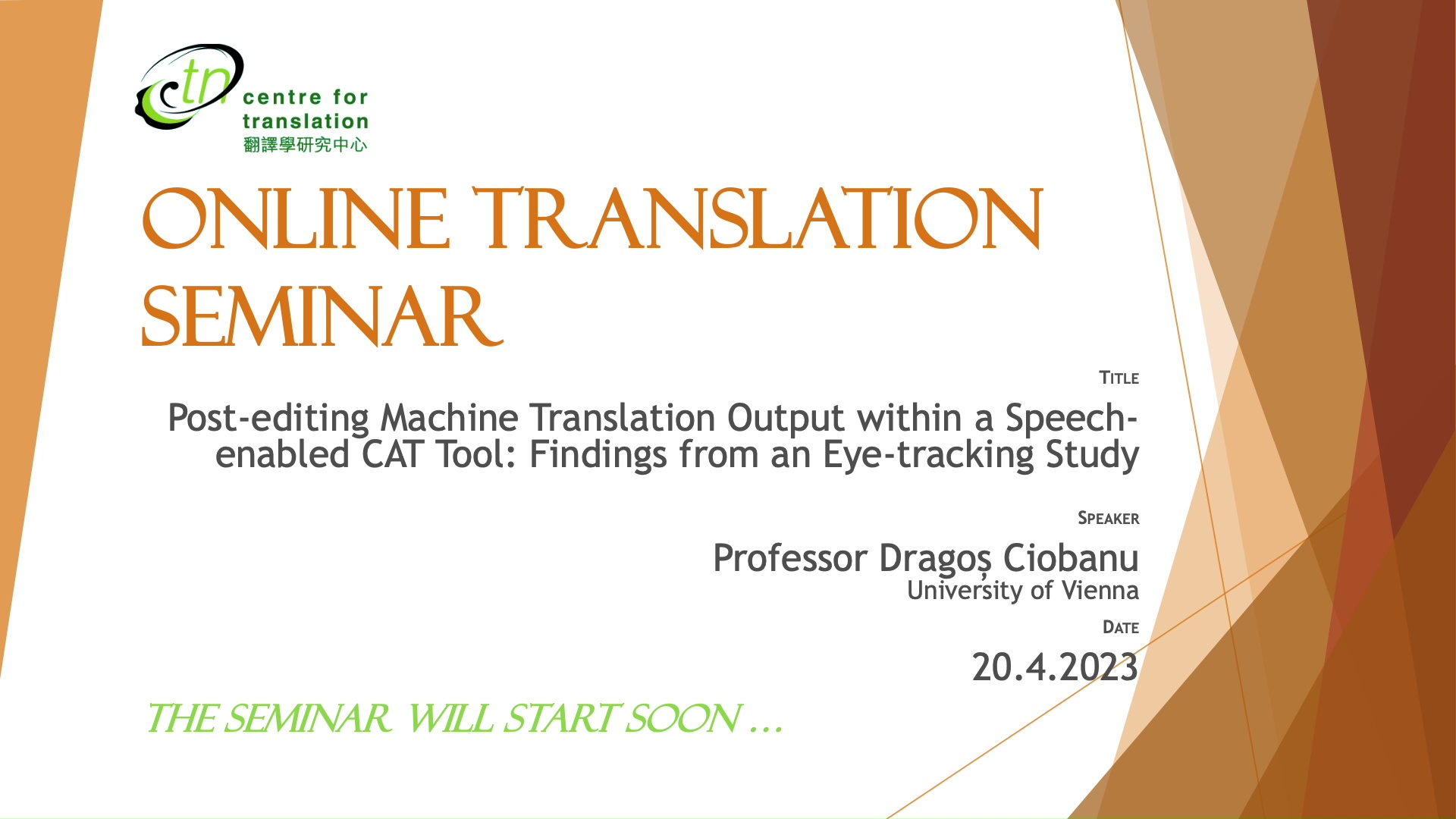
Post-editing Machine Translation Output within a Speech-enabled CAT Tool: Findings from an Eye-tracking Study
2023 | 121 mins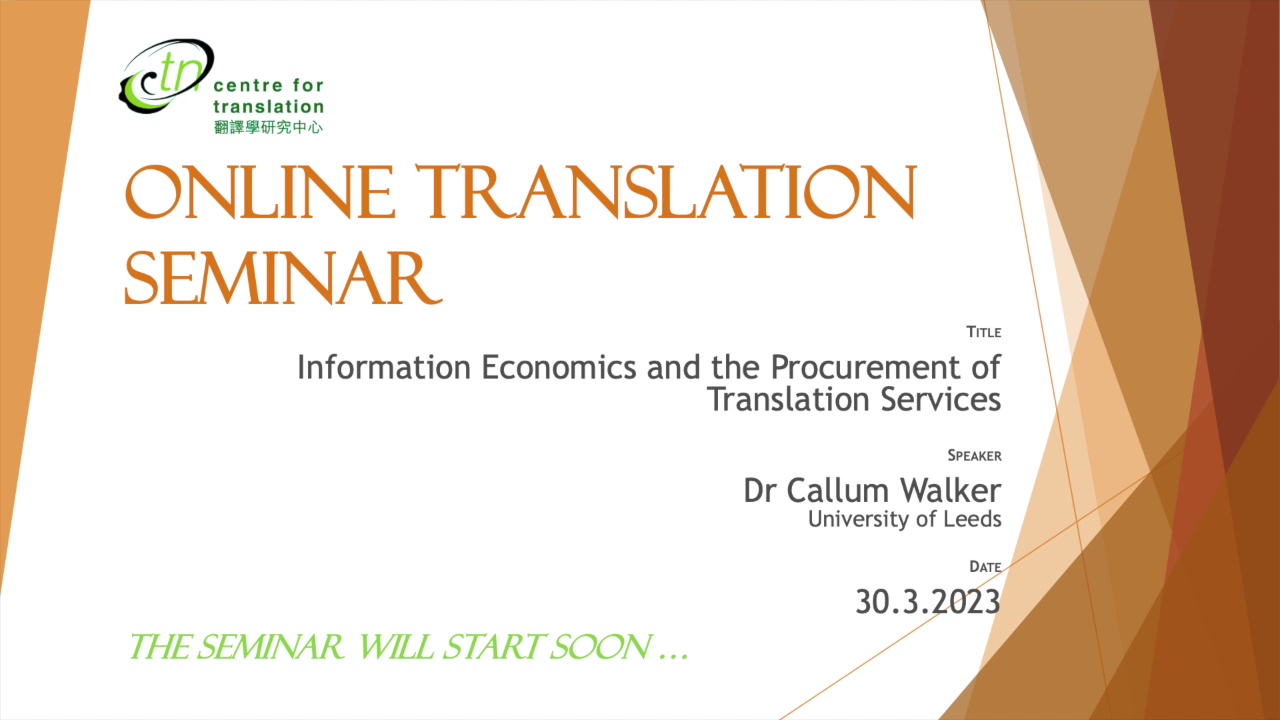
Information Economics and the Procurement of Translation Services
2023 | 122 mins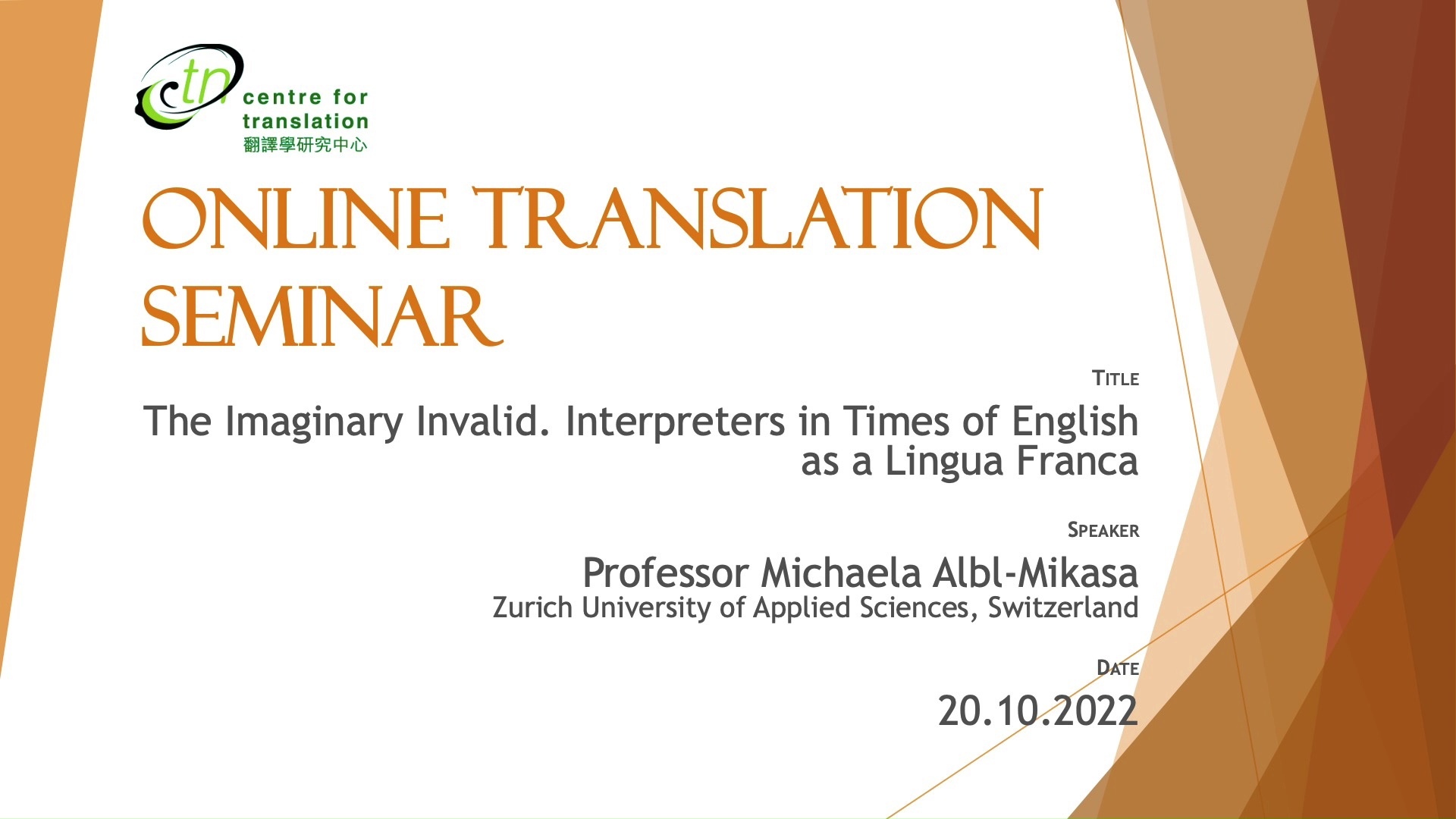
The Imaginary Invalid. Interpreters in Times of English as a Lingua Franca
2022 | 130 mins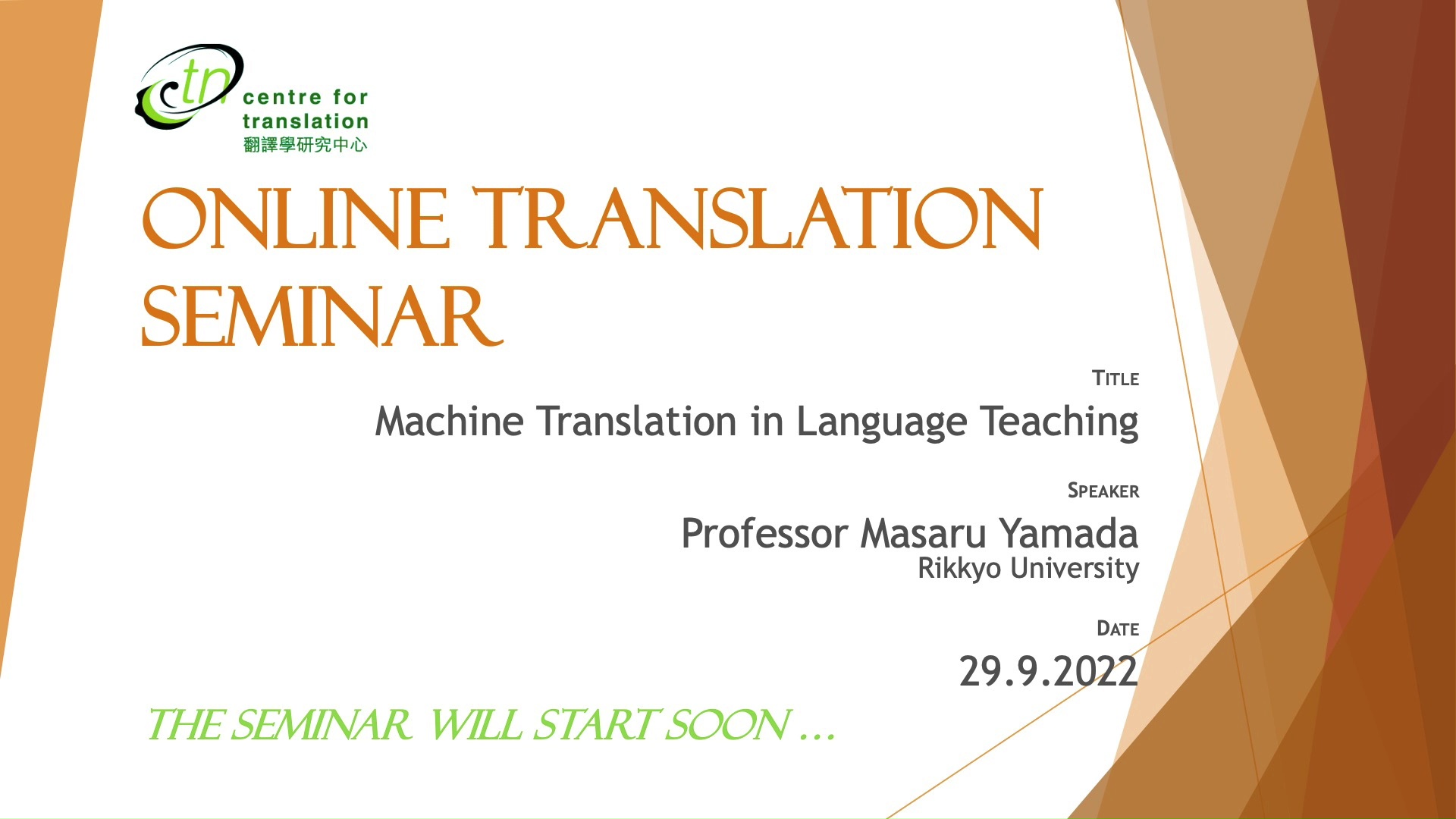
Machine Translation in Language Teaching (MTILT)
2022 | 122 mins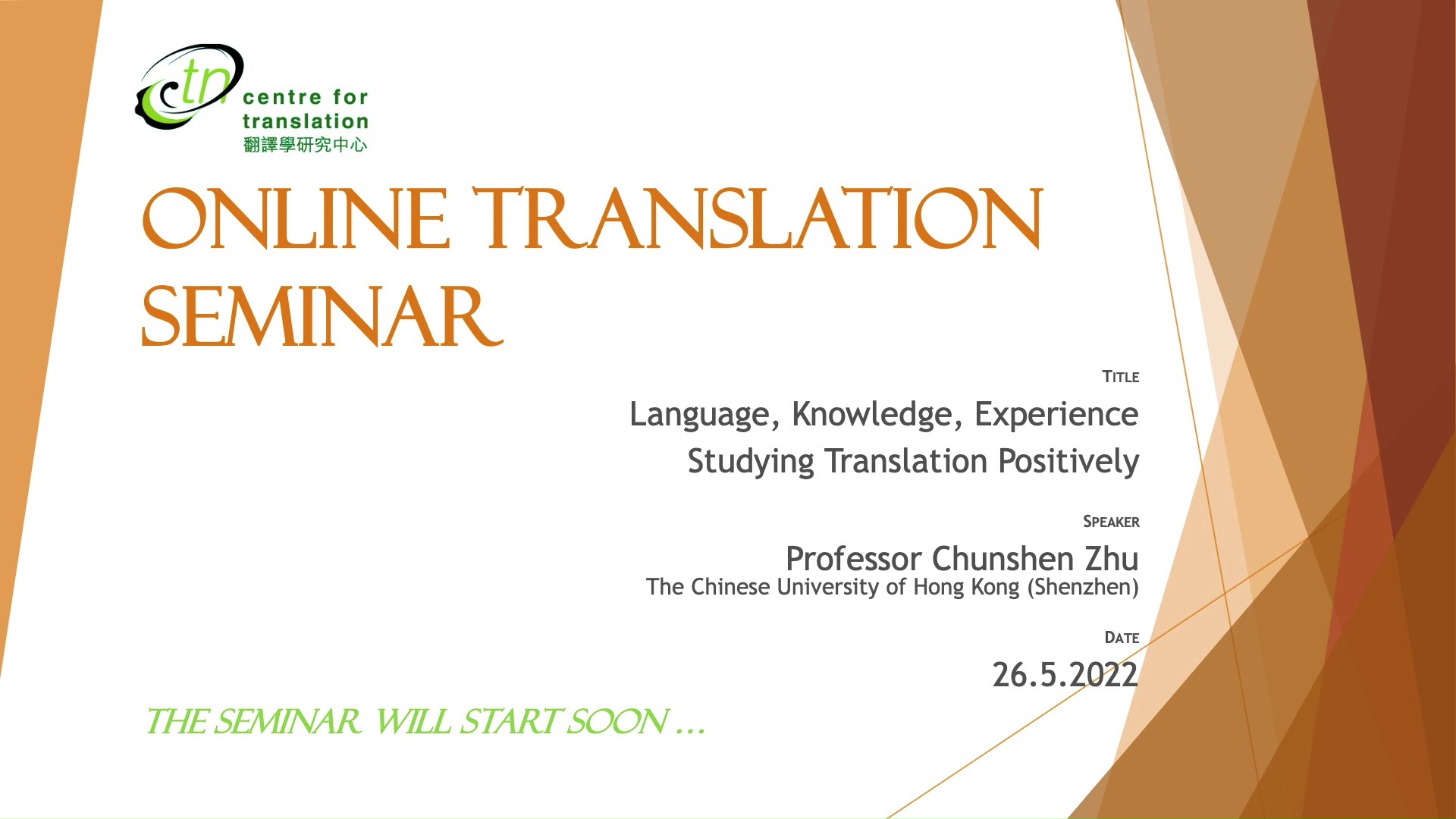
Language, Knowledge, Experience – Studying Translation Positively
2022 | 130 mins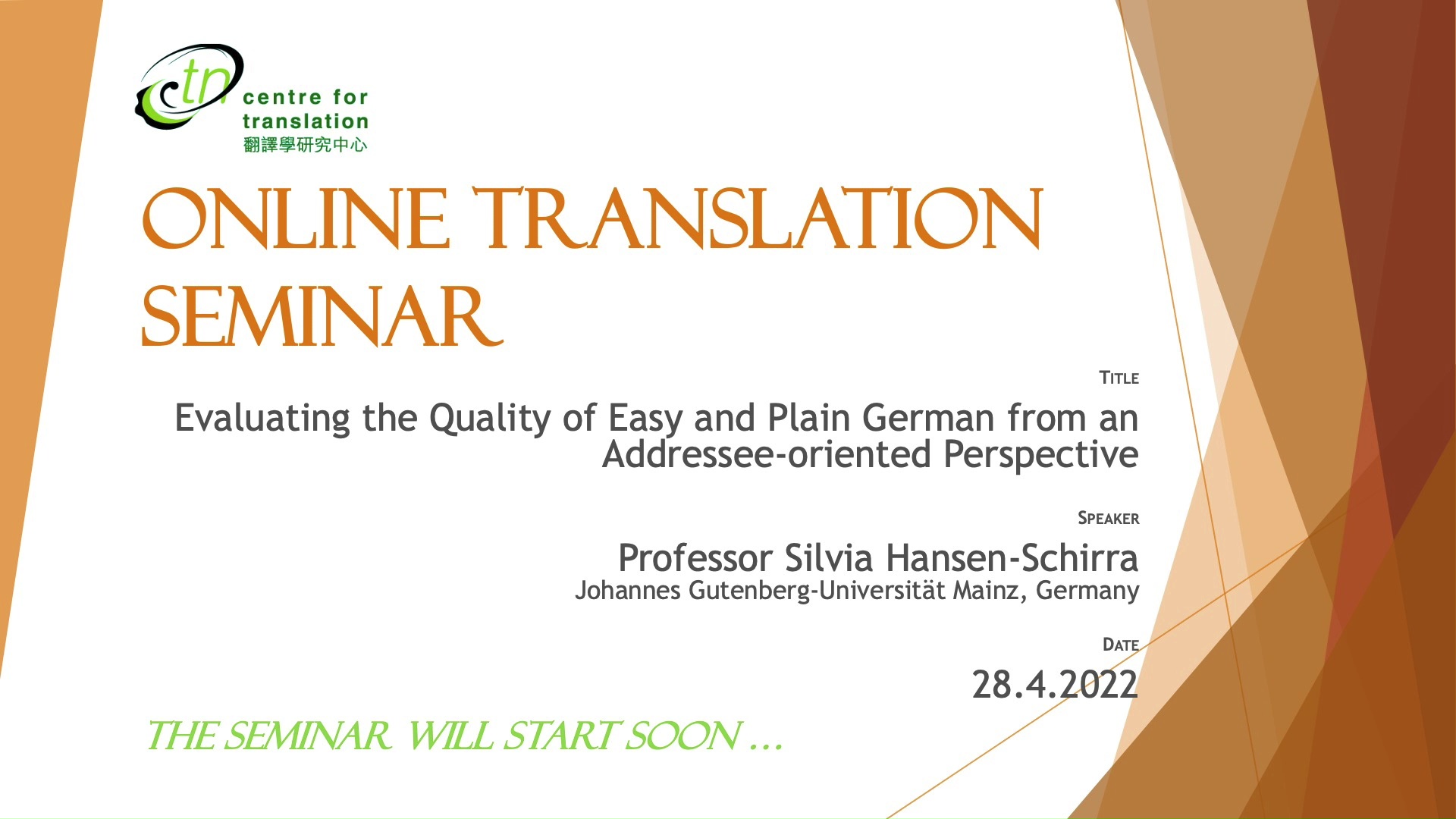
Evaluating the Quality of Easy and Plain German from an Addressee-oriented Perspective
2022 | 111 mins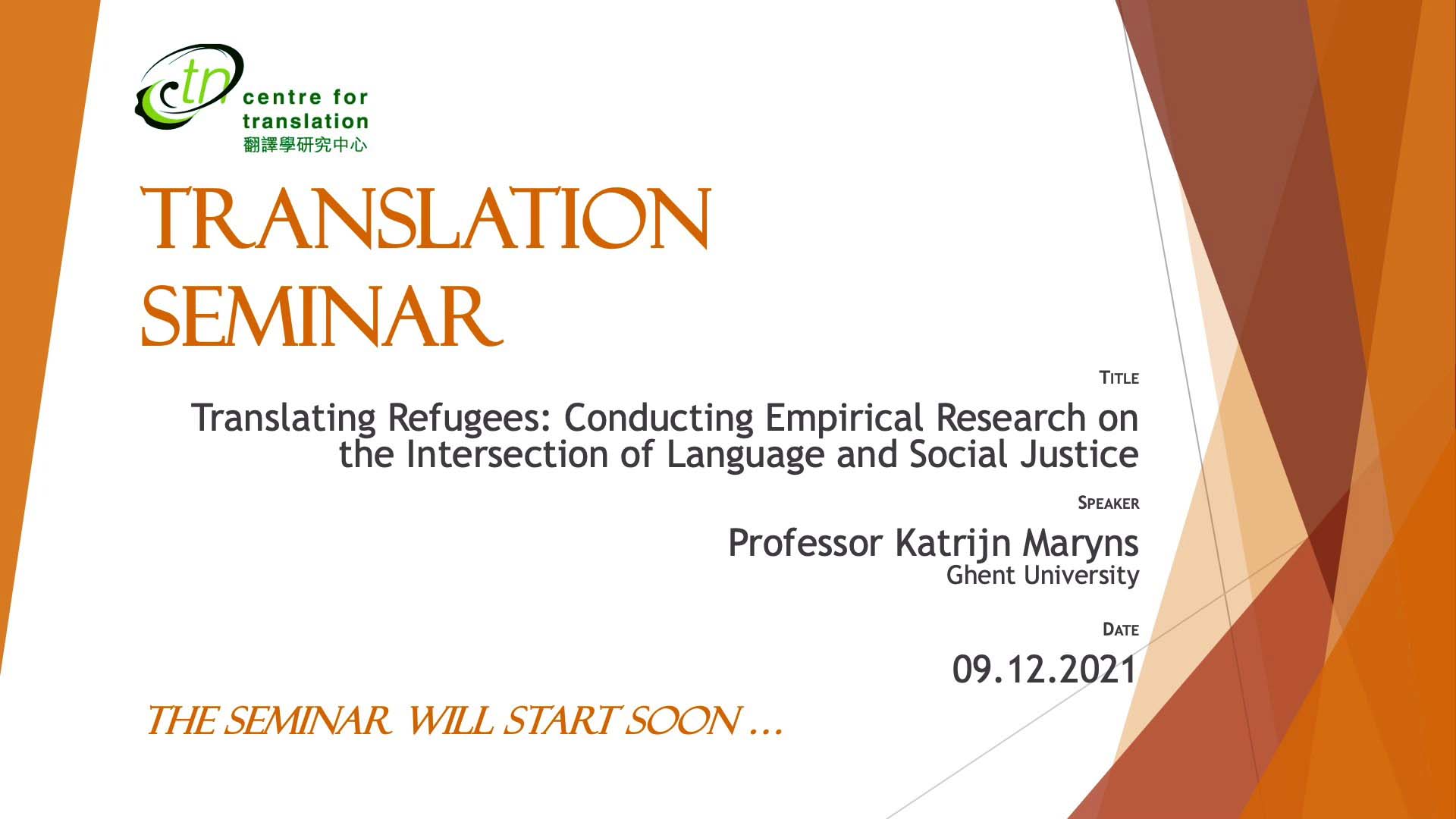
Translating Refugees: Conducting Empirical Research on the Intersection of Language and Social Justice
2021 | 95 mins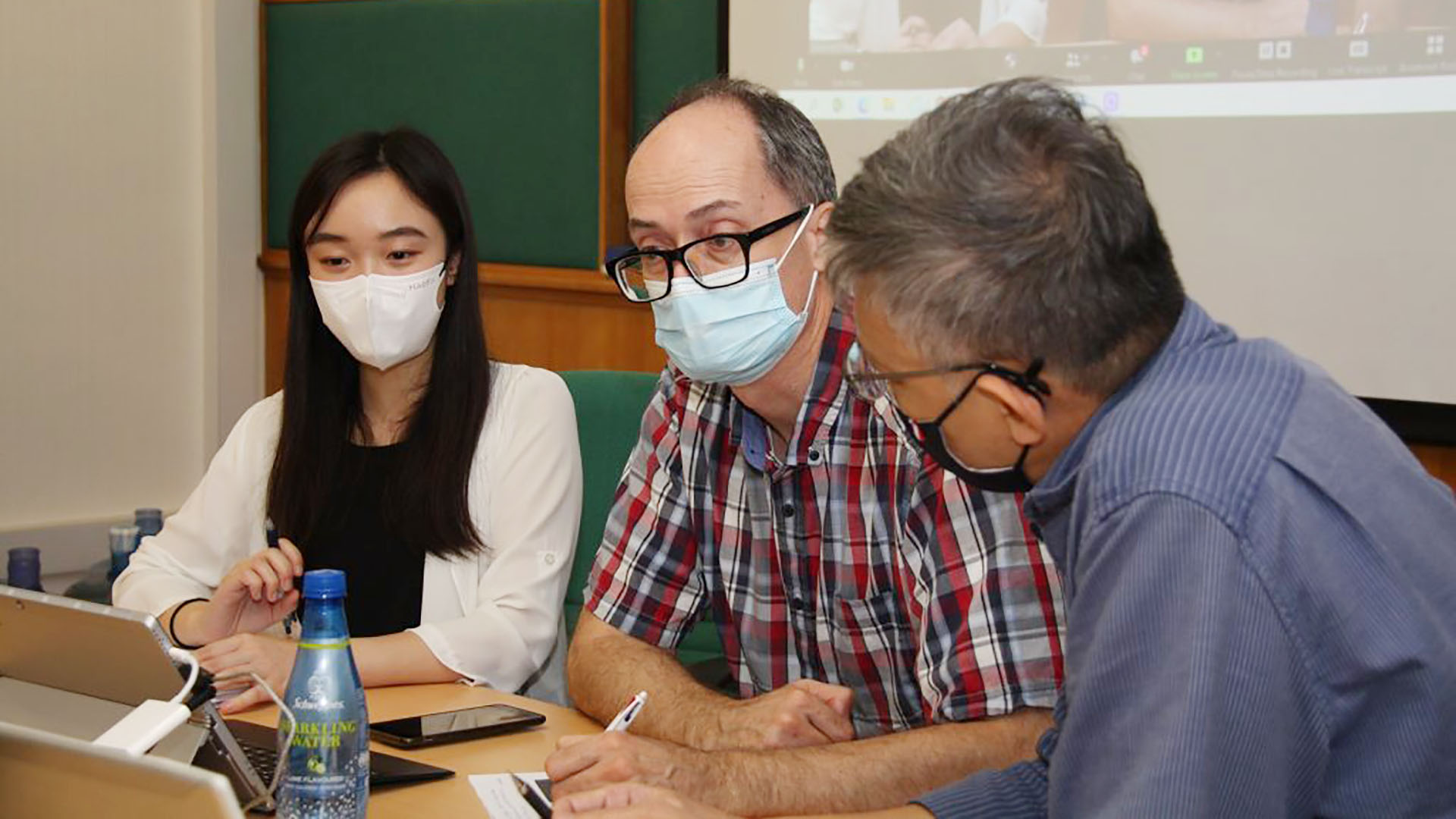
COVID-19 and Metaphor: A Bilingual Study of Pandemic Metaphor in Hong Kong Public Discourse
2021 | 98 mins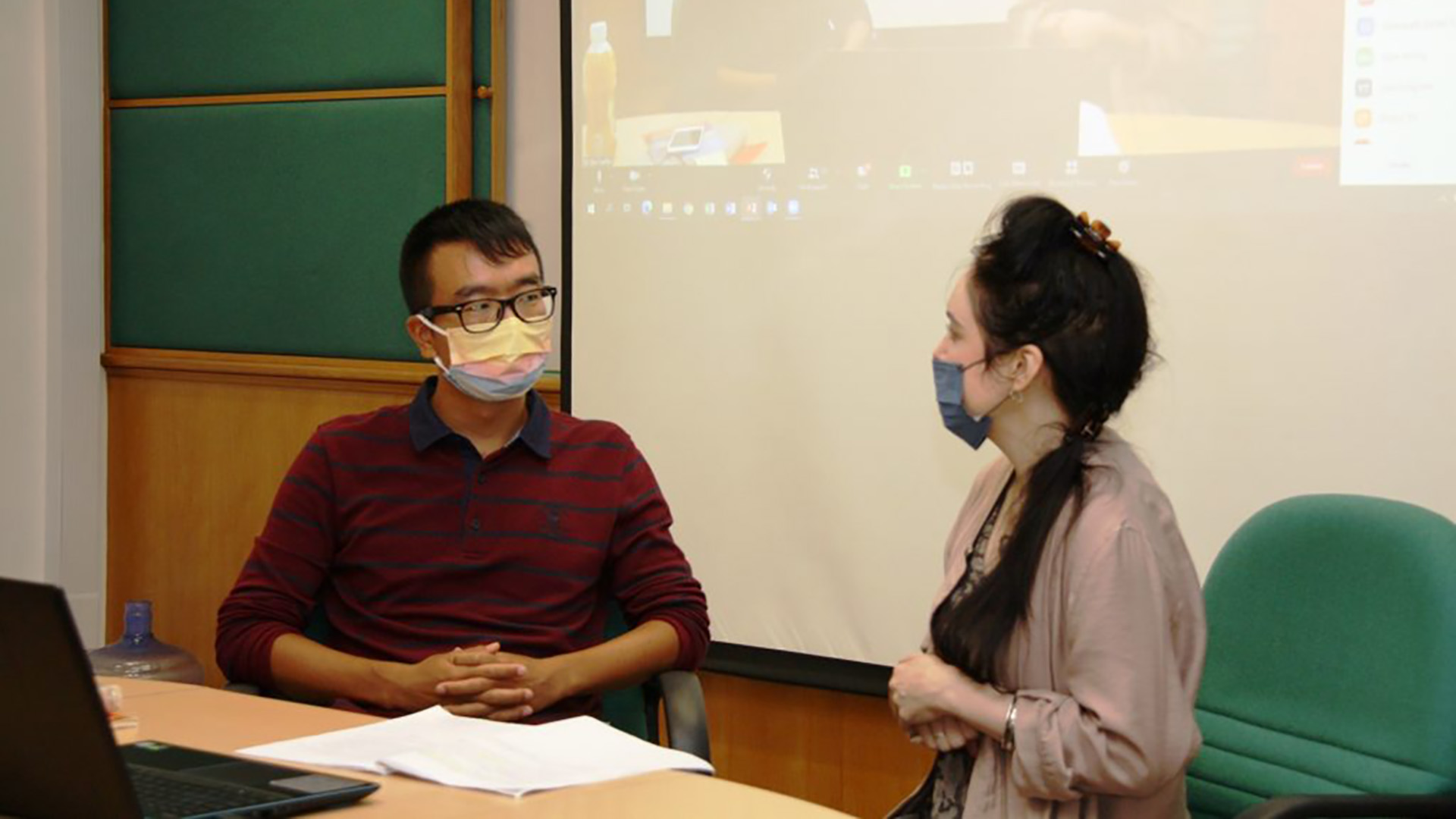
A Sino-Tibetan-Western Interfaith Dialogue at Mount Gongga 貢嘎山 in Western Sichuan in the Summer of 1945
2021 | 106 mins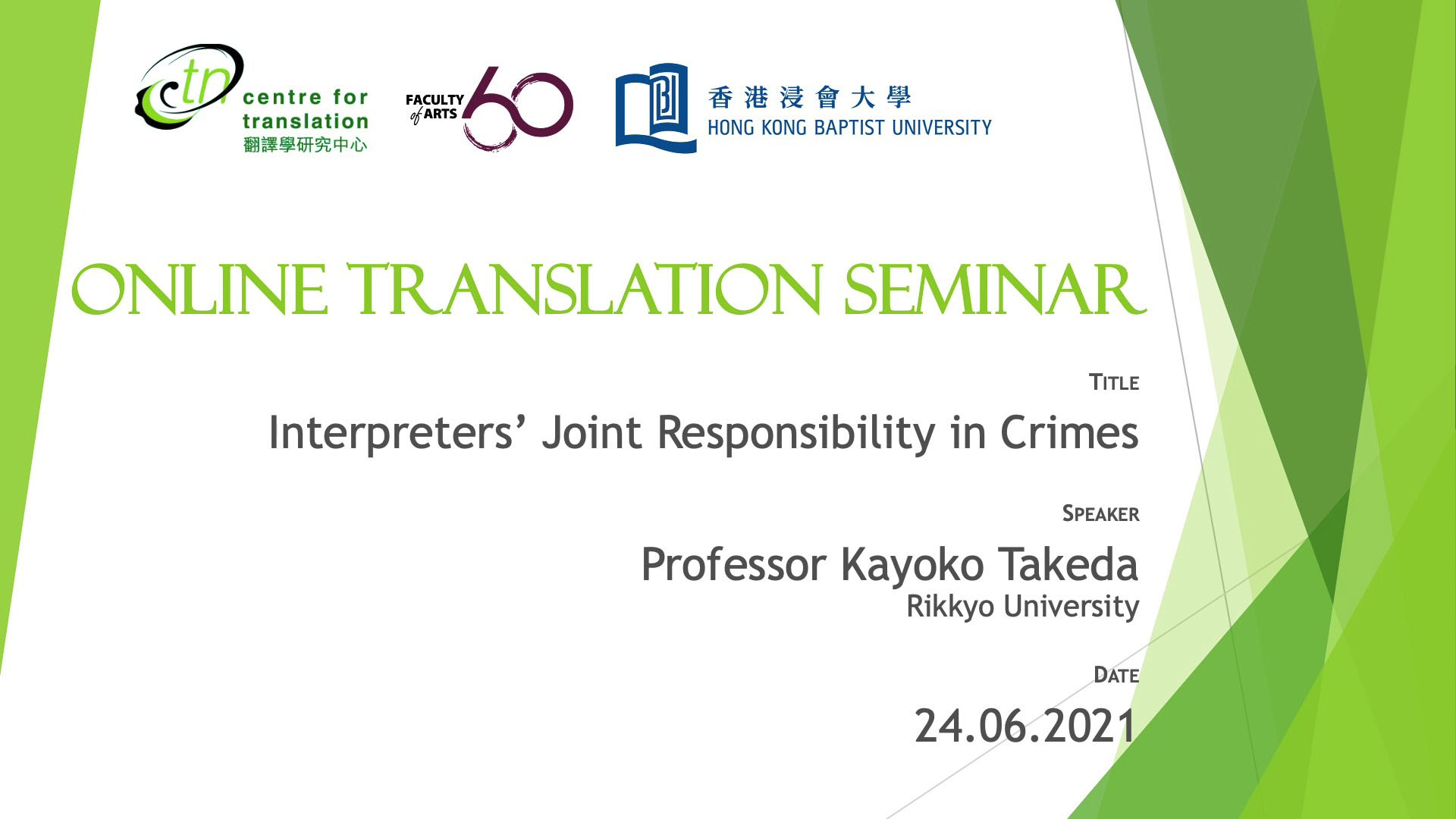
Interpreters' Joint Responsibility in Crimes
2021 | 125 mins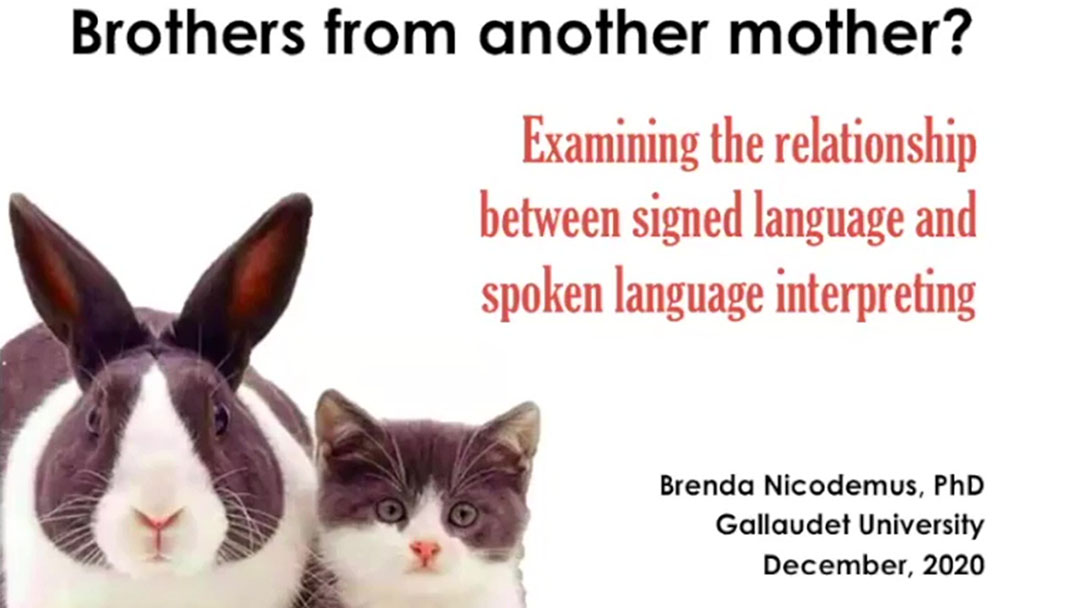
Brothers from Another Mother? Examining the Relationship between Signed Language and Spoken Language Interpreting
2020 | 125 mins
Translator Ethics: From Cooperation to Risk and Trust
2020 | 112 mins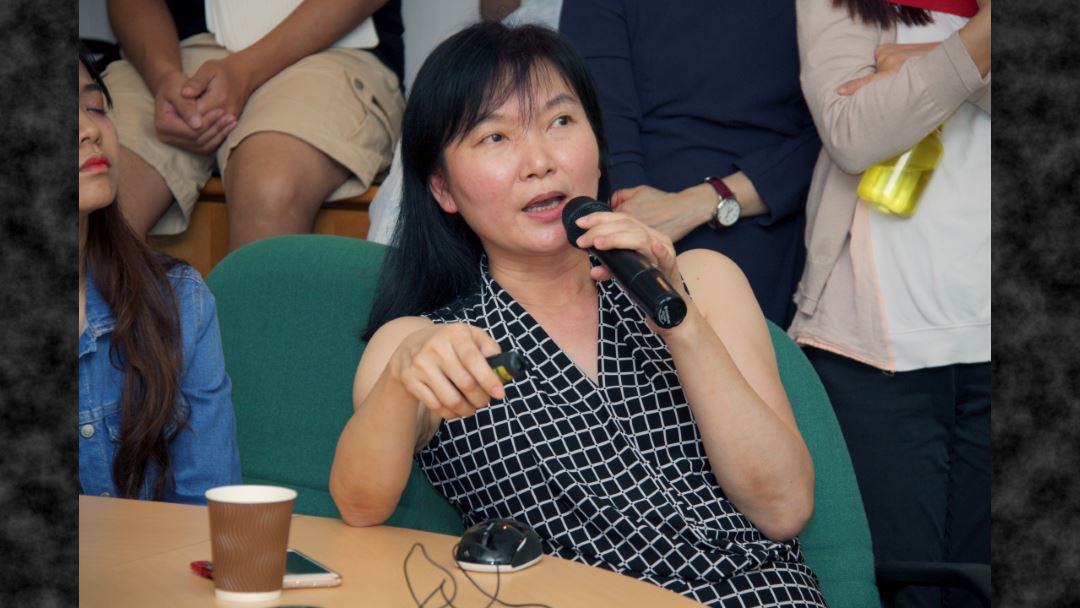
Common Law in an Uncommon Courtroom: Judicial Interpreting in Hong Kong
2019 | 98 mins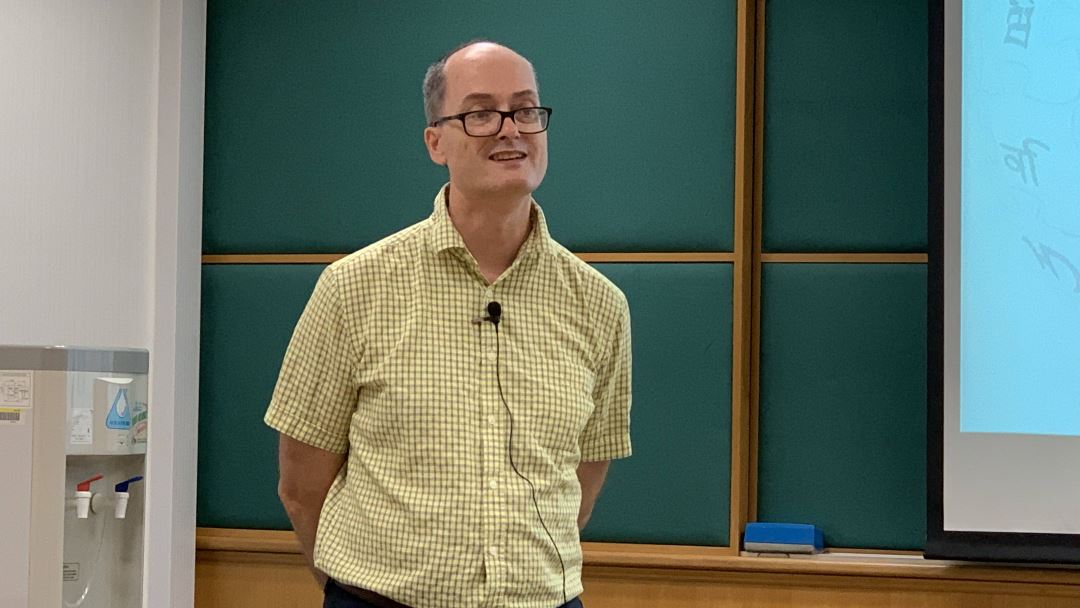
Tracking the Framing of Political Figures across the Multilingual Wikipedia
2019 | 70 mins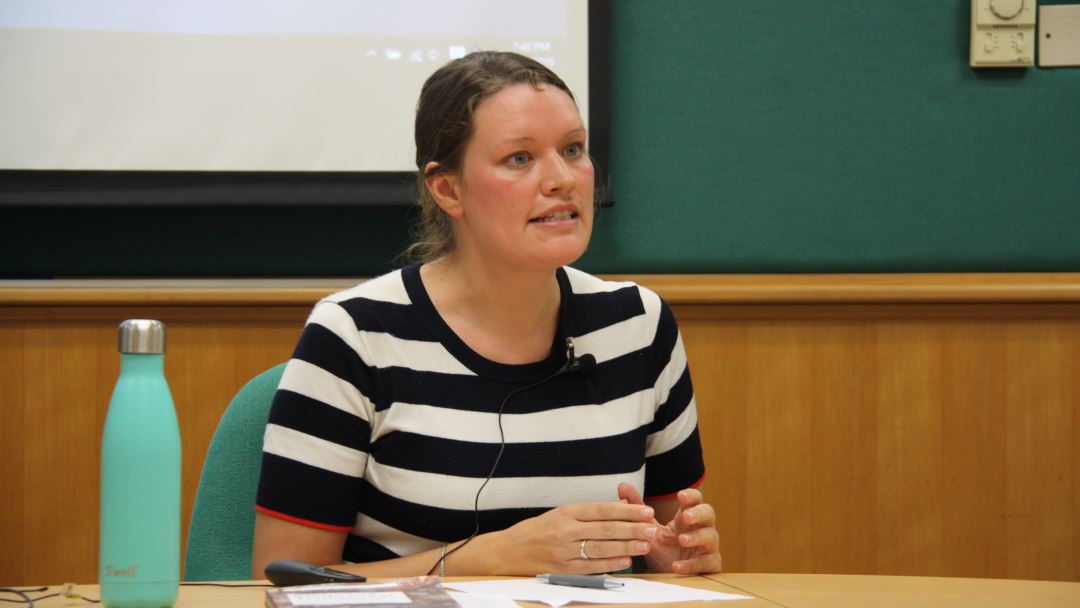
Book Talk: Ethics and Aesthetics of Translation
2019 | 69 mins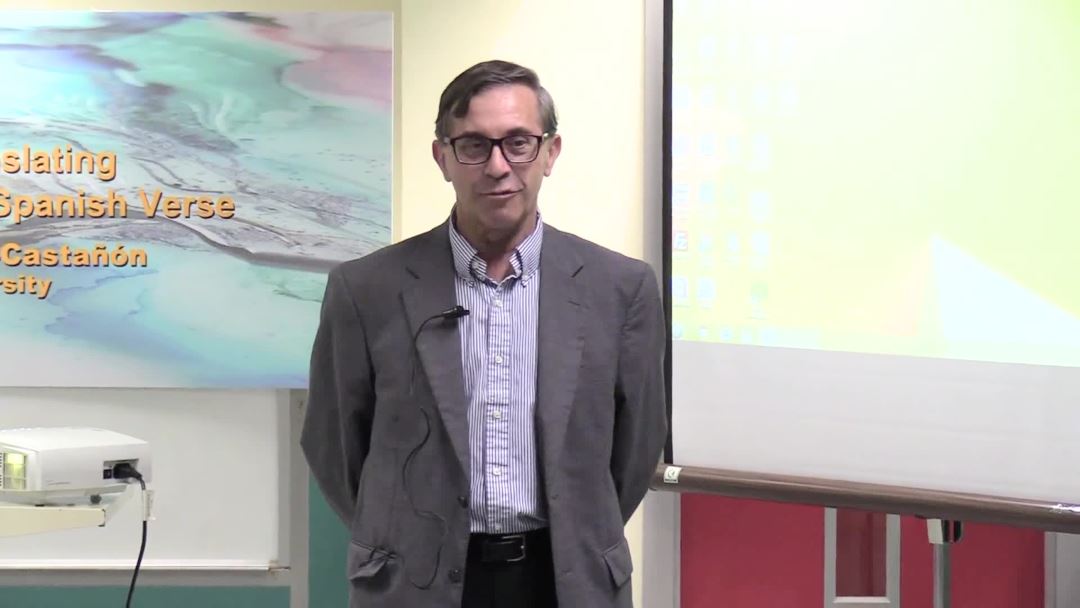
The Challenges of Translating English Classical Poetry into Spanish Verse
2019 | 49 mins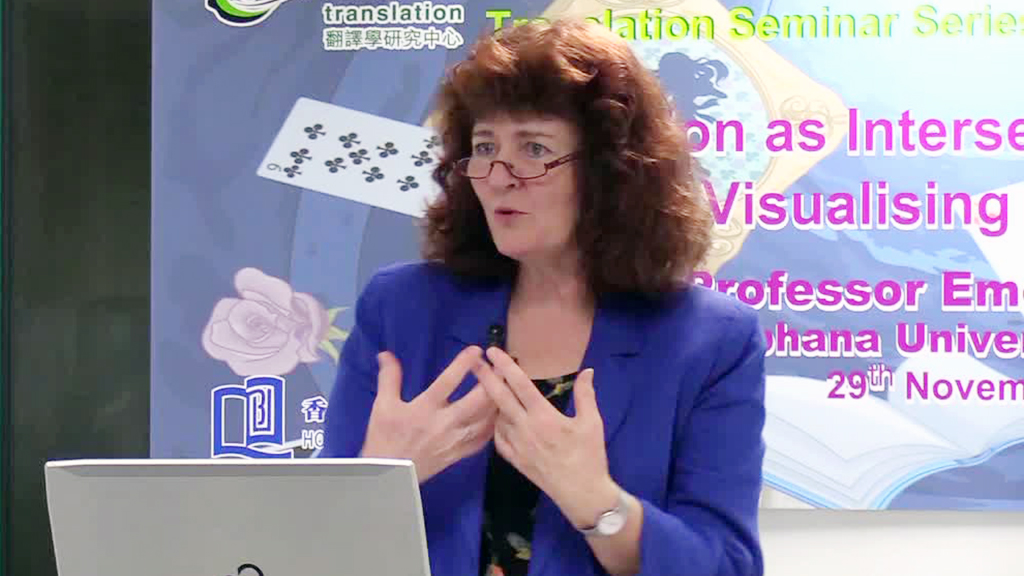
Illustration as Intersemiotic Translation: Visualising Nonsense
2018 | 109 mins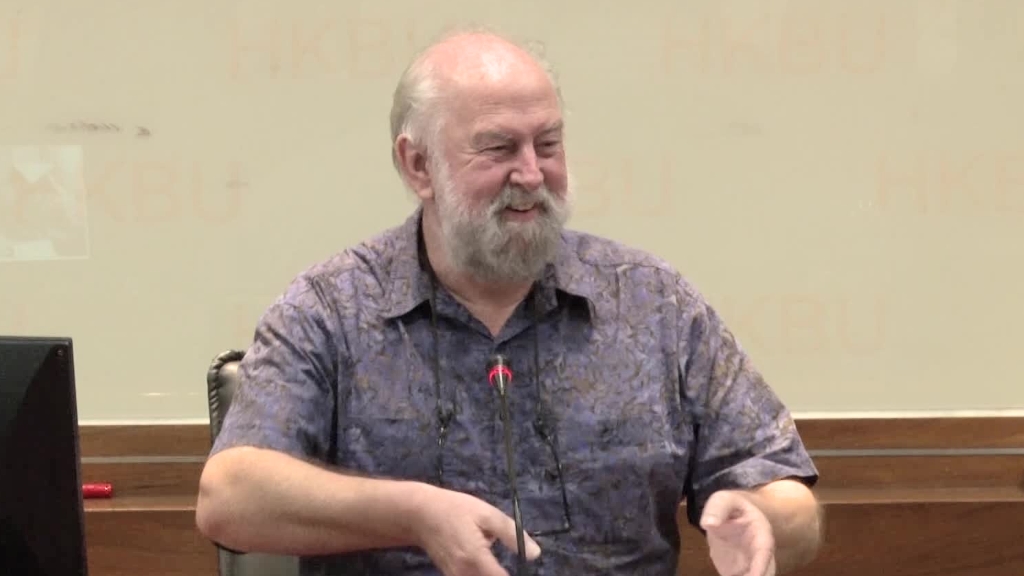
Lost Suppers, Longing for Commensality – Food across Disciplines, Life across Cultures
2018 | 109 mins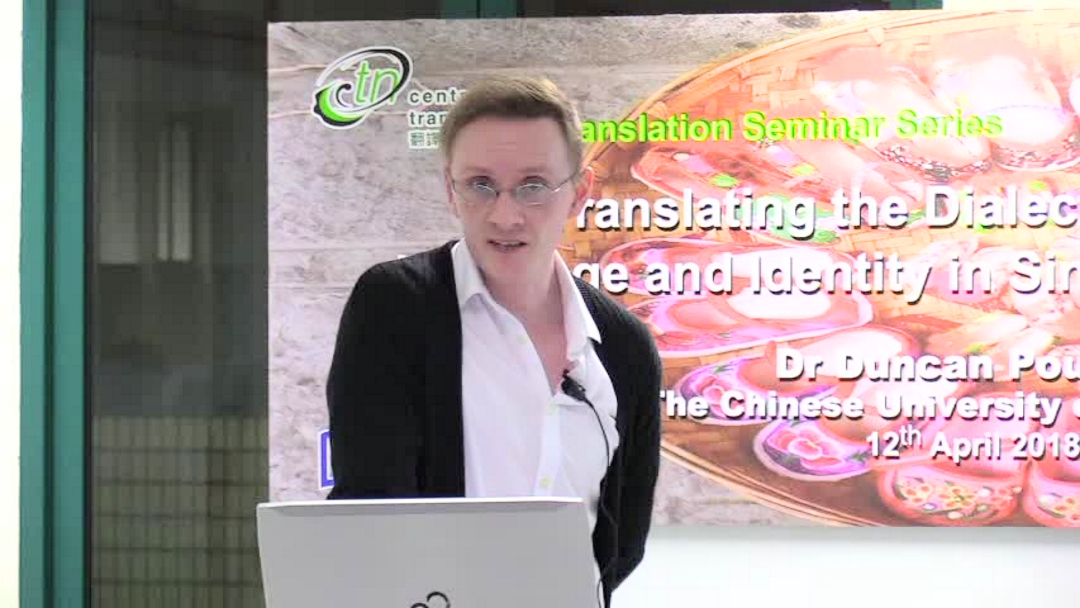
Translating the Dialect of the Tribe: Language and Identity in Sinophone Bai Writing
2018 | 106 mins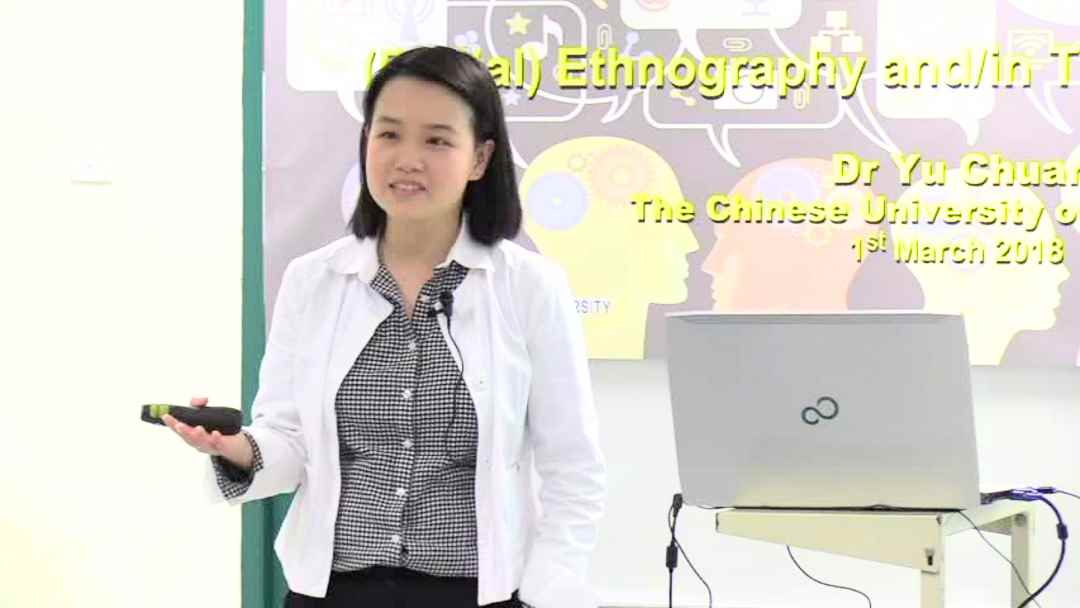
(Digital) Ethnography and/in Translation Research
2018 | 111 mins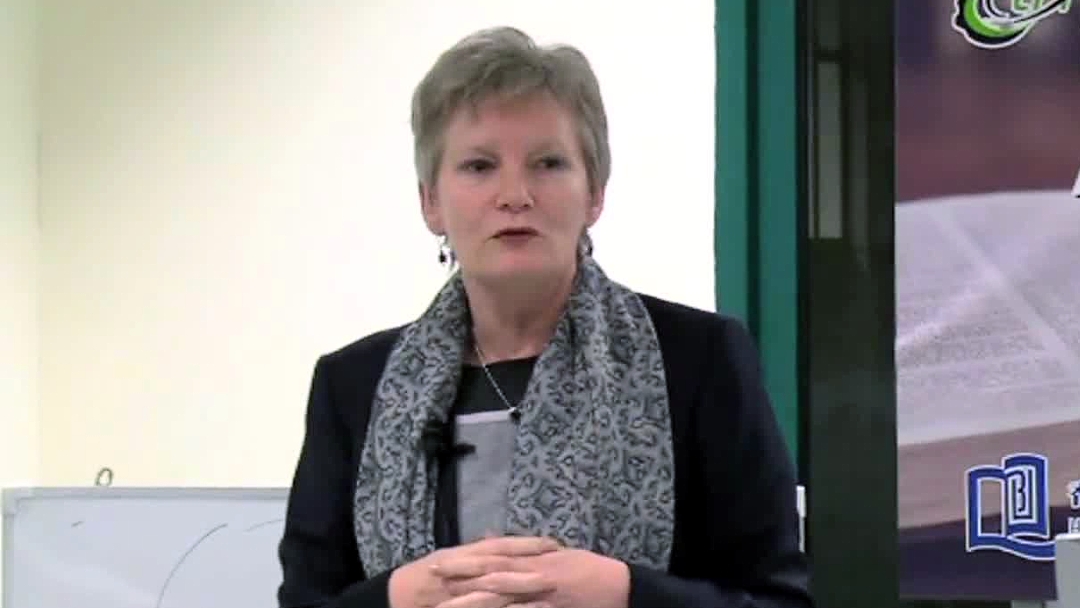
A Systematic Approach to Designing Curricula for University Translator Education Programmes
2018 | 100 mins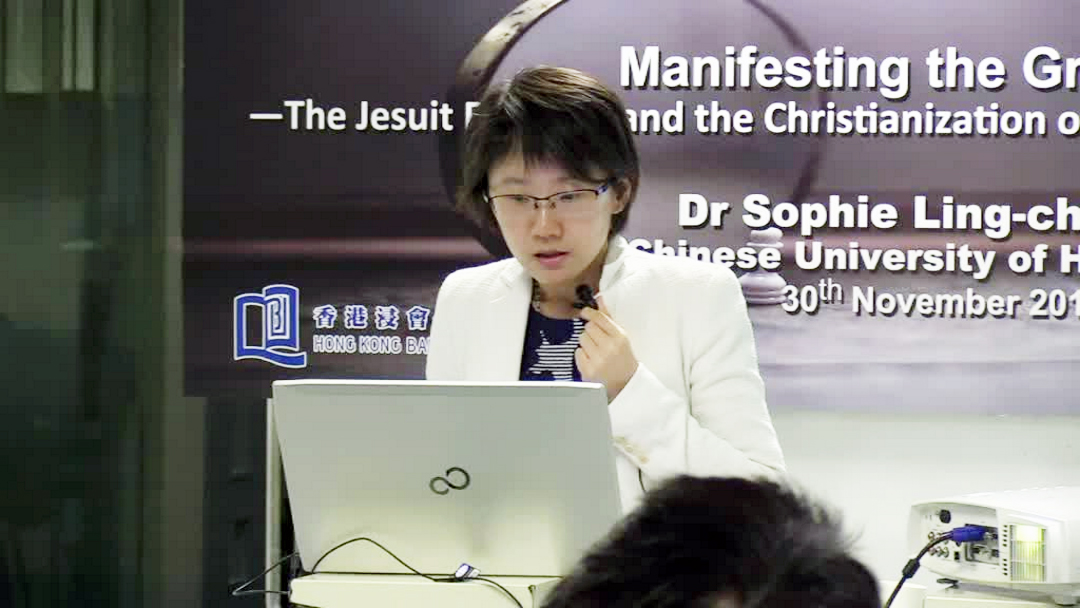
Manifesting the Great Dao - The Jesuit Figurists and the Christianization of the Yijing and Daoist Classics
2017 | 109 mins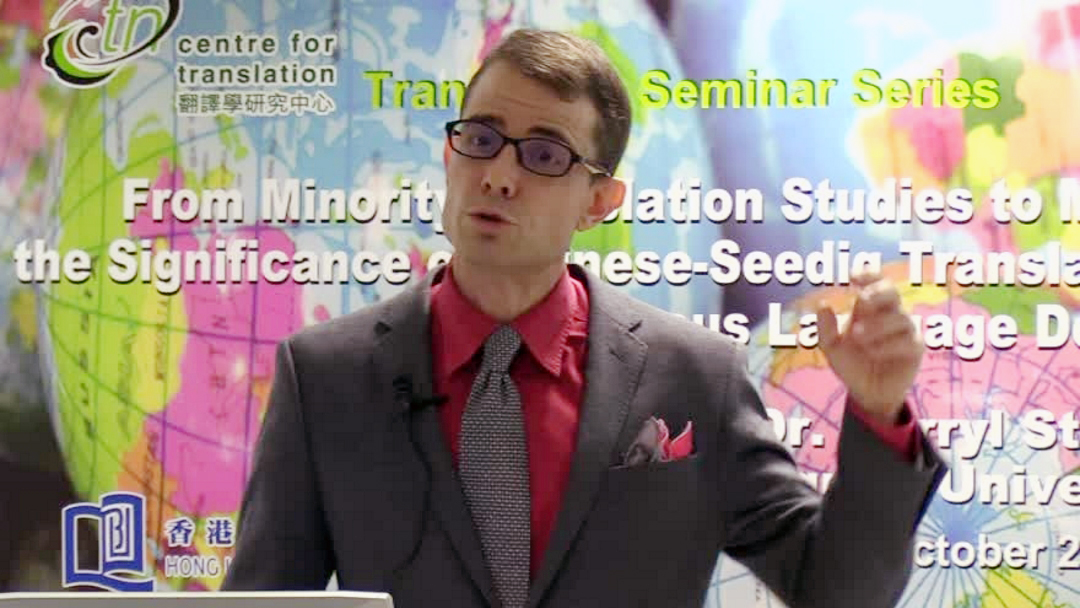
From Minority Translation Studies to Moribund Translation Studies: the Significance of Chinese-Seediq Translation in Taiwan in the Wake of the Indigenous Language Development Act
2017 | 94 mins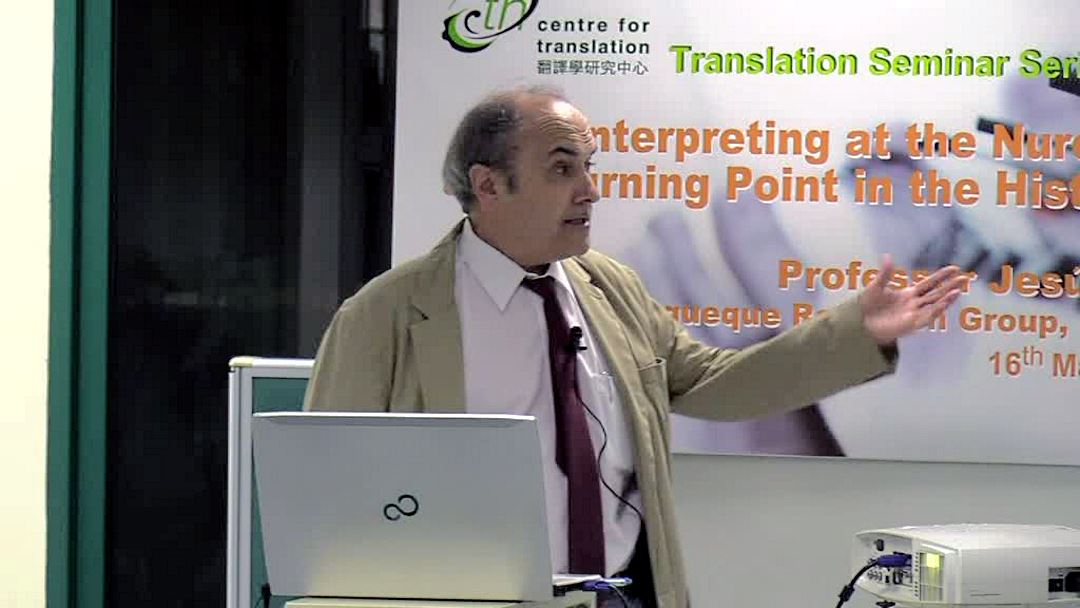
Interpreting at the Nuremberg Trial (1945-1946) as a Turning Point in the History of Conference Interpreting
2017 | 117 mins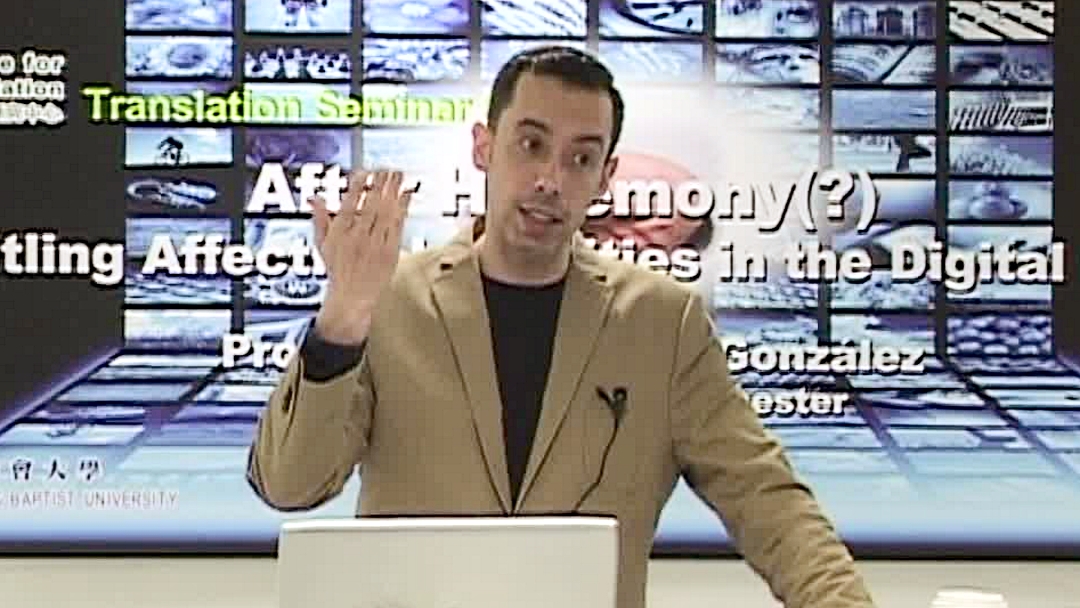
After Hegemony(?) Subtitling Affective Intensities in the Digital Culture
2017 | 133 mins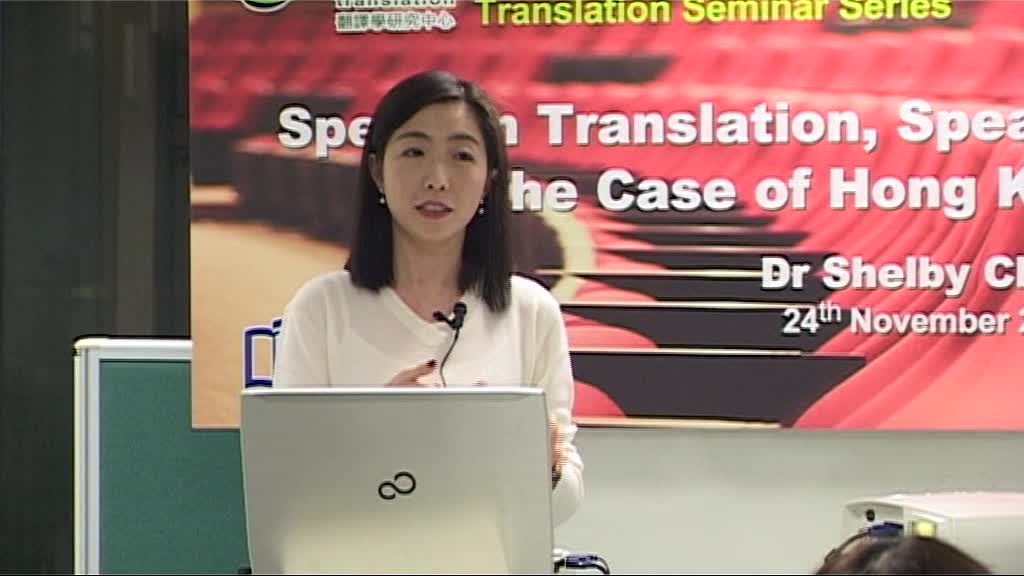
Speak In Translation, Speak Over Translation: The Case of Hong Kong Theatre
2016 | 110 mins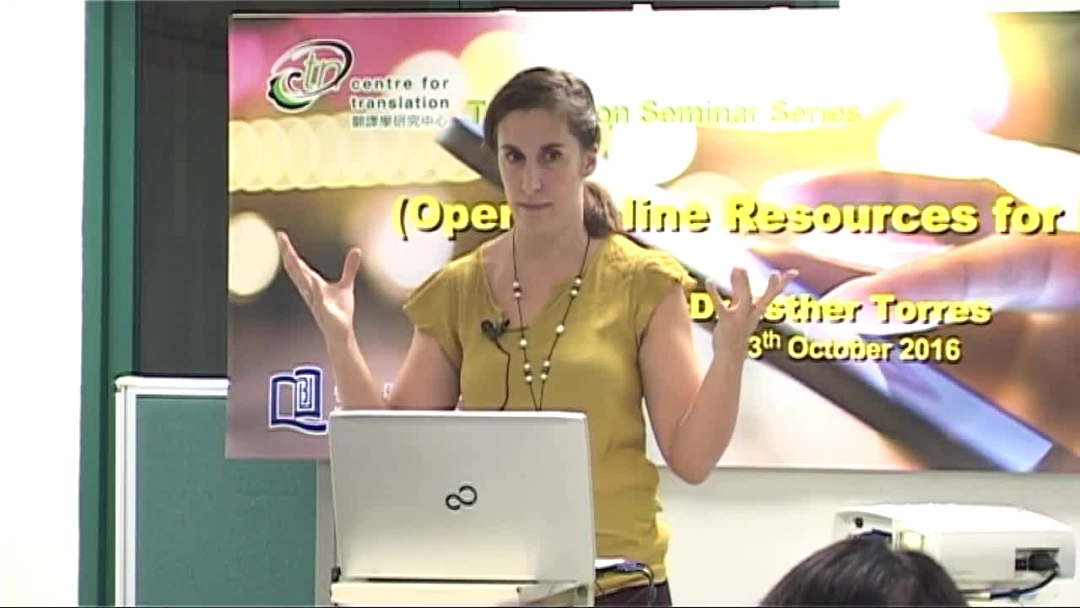
(Open) Online Resources for Research
2016 | 91 mins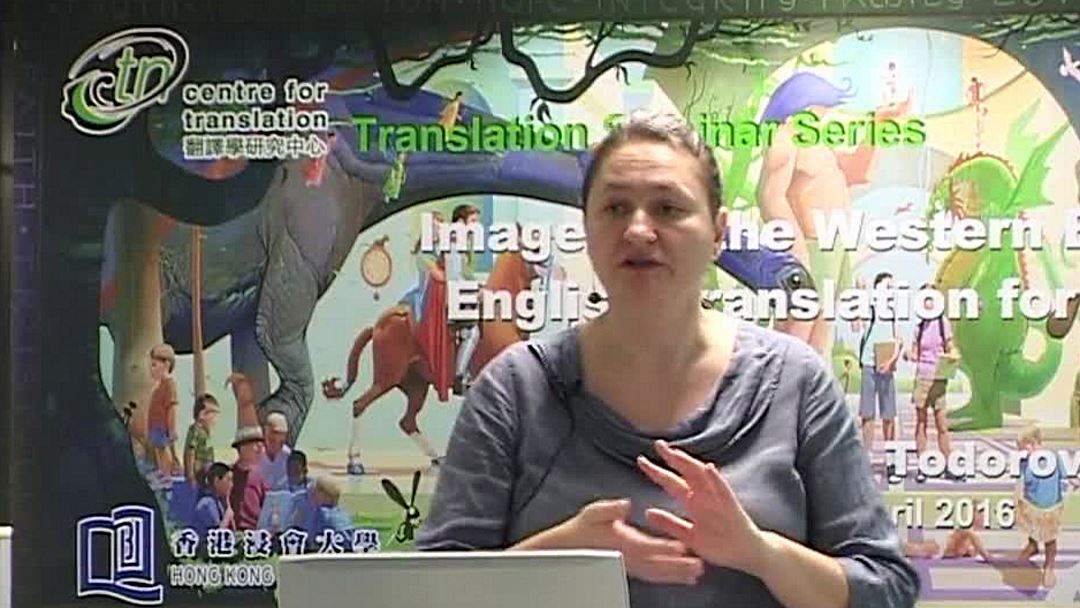
Images of the Western Balkans in English Translation for Children
2016 | 104 mins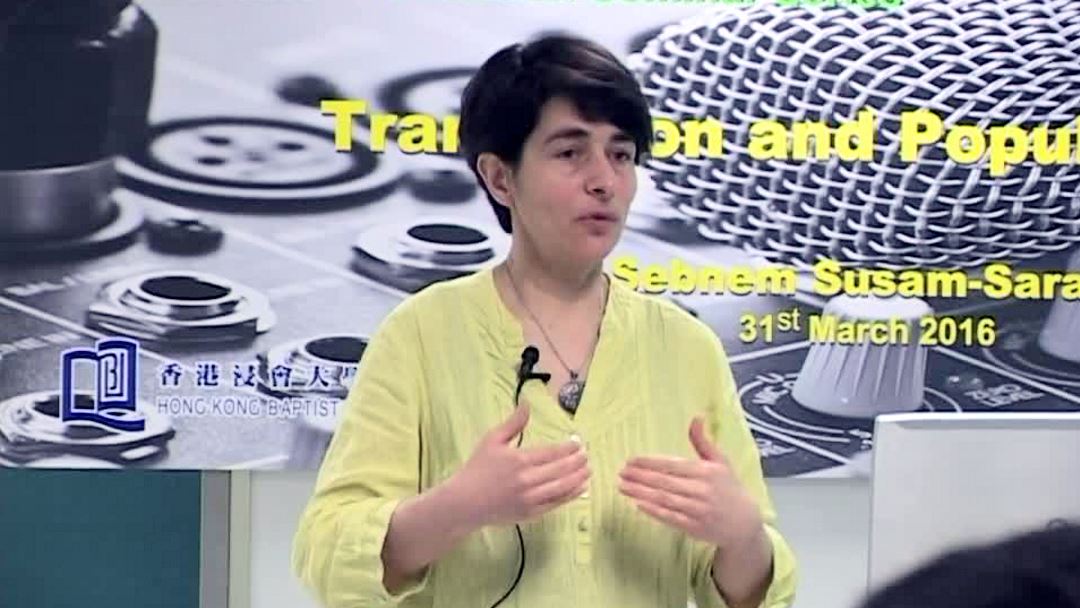
Translation and Popular Music
2016 | 77 mins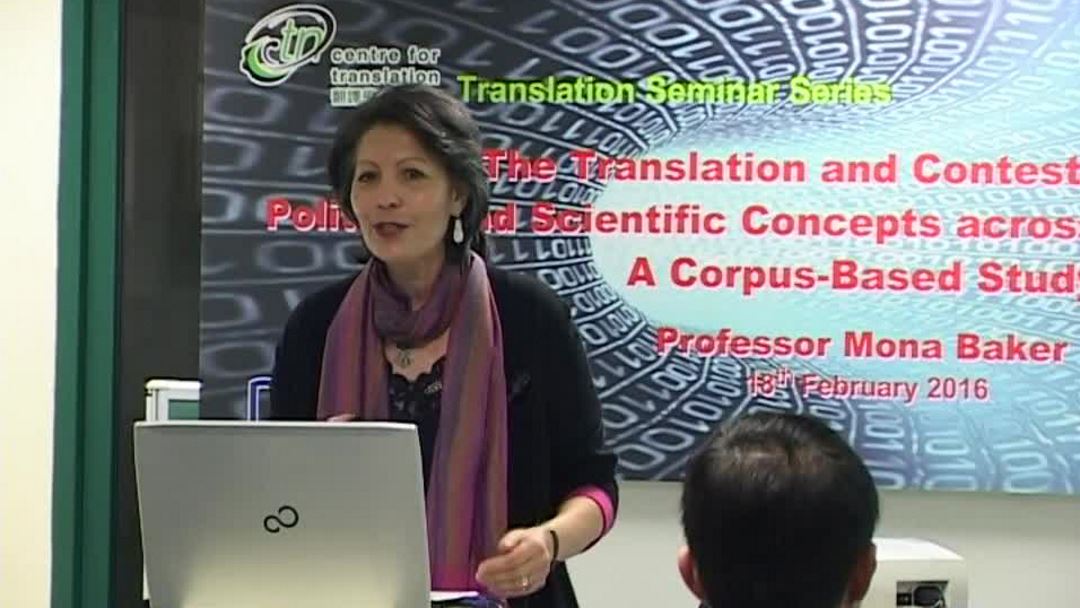
The Translation and Contestation of Political and Scientific Concepts across Time and Space: A Corpus-Based Study
2016 | 119 mins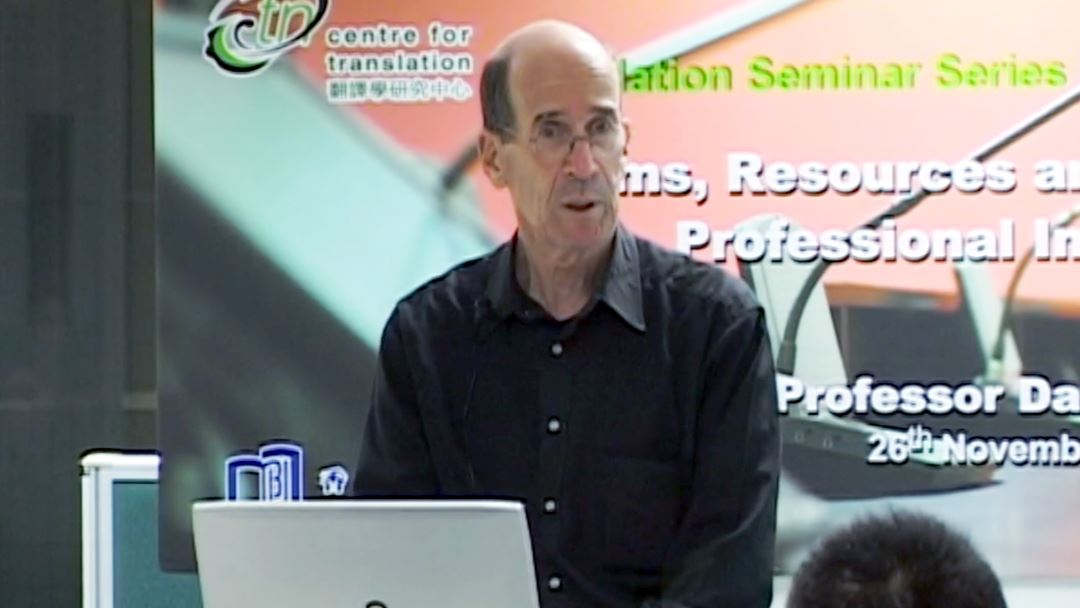
Norms, Resources and Constraints in Professional Interpreting
2015 | 110 mins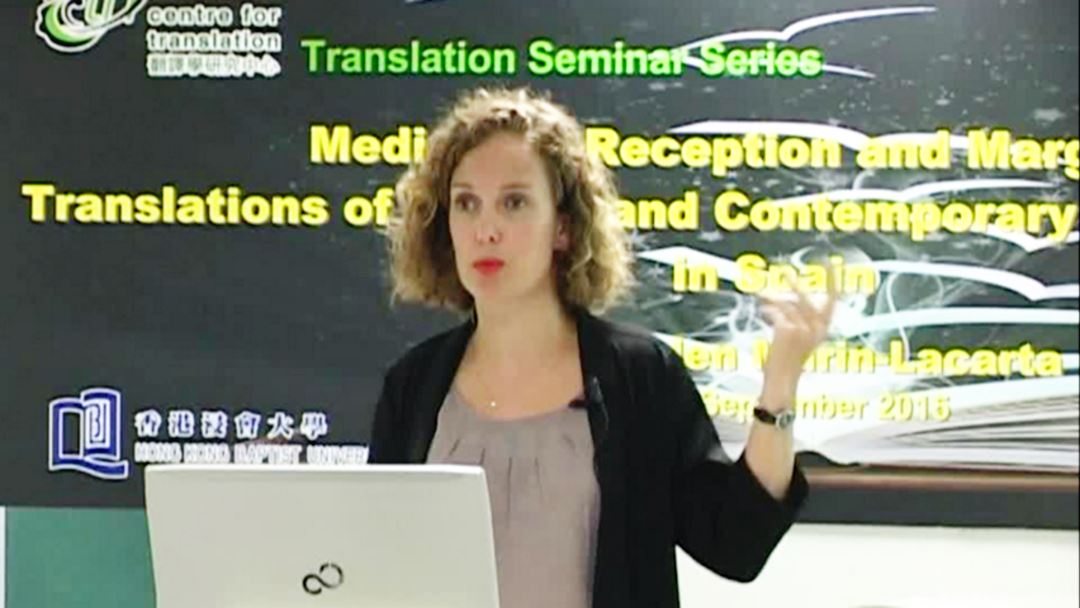
Mediation, Reception and Marginality: Translations of Modern and Contemporary Chinese Literature in Spain
2015 | 90 mins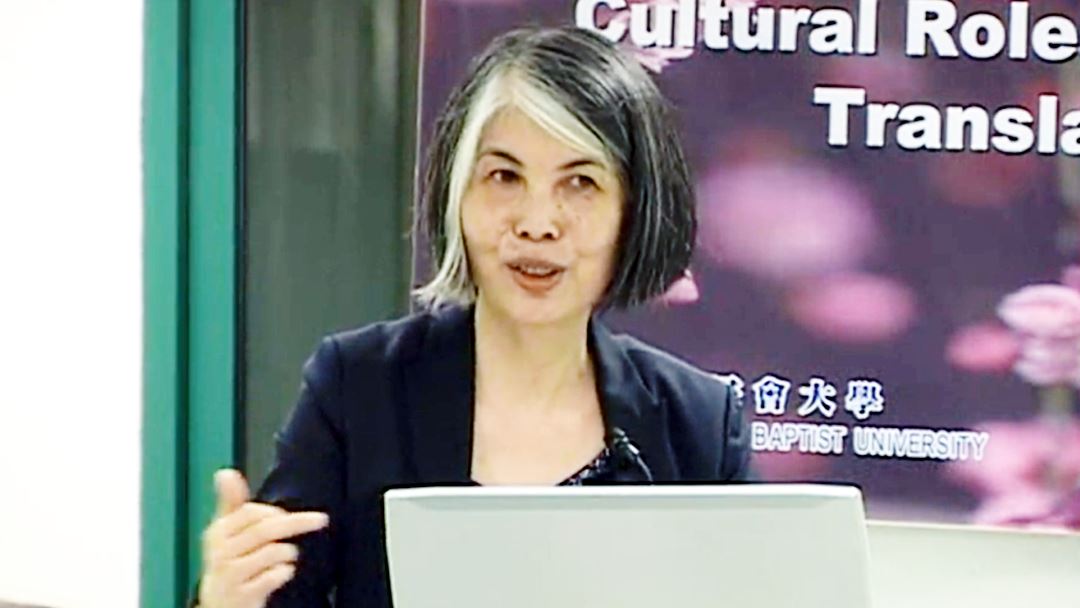
Cultural Roles of Chinese Migrants in Edo Japan: Translation, Interpreting and Beyond
2015 | 101 mins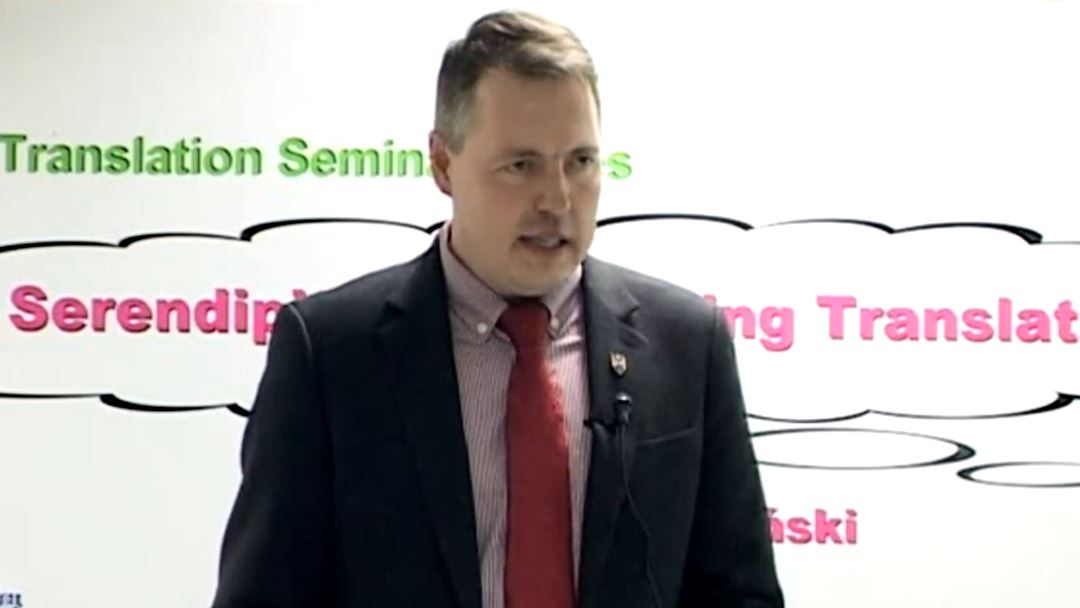
Serendipity in Theorizing Translation
2015 | 103 mins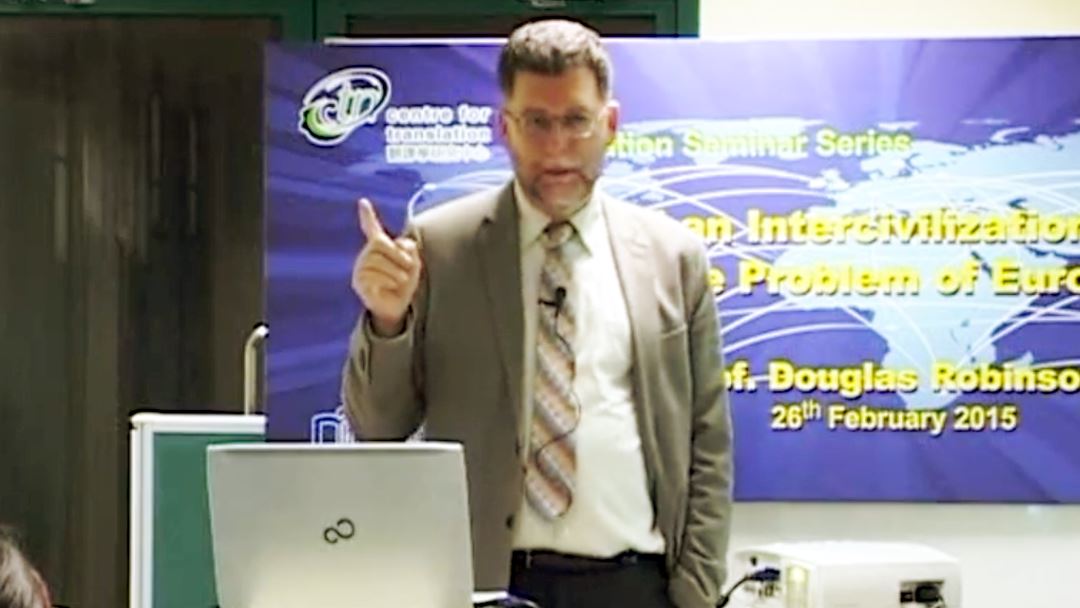
Toward an Intercivilizational Turn: TS and the Problem of Eurocentrism
2015 | 106 mins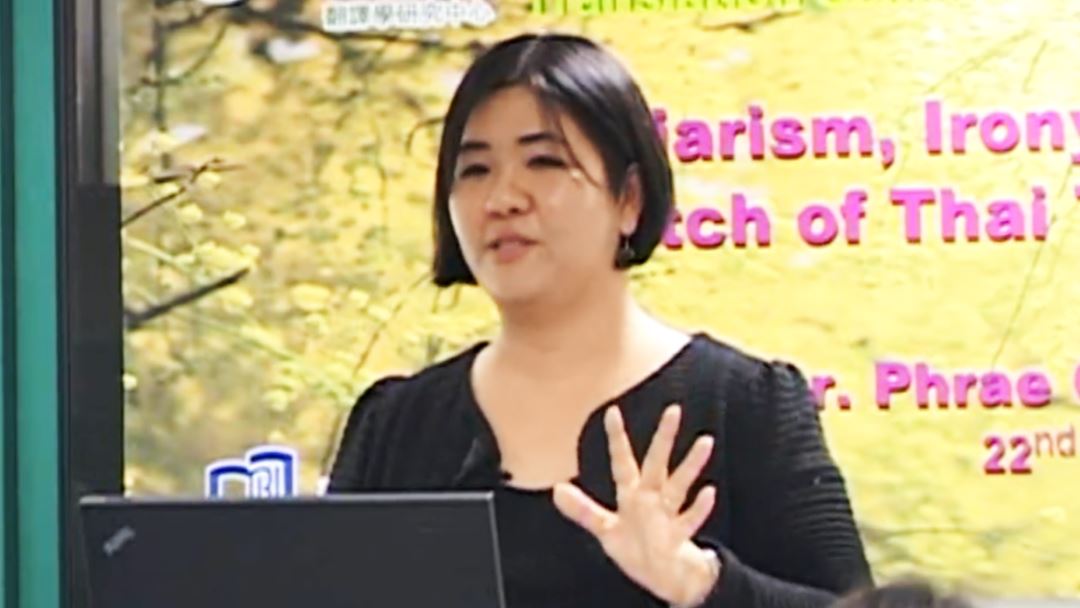
Plagiarism, irony and incense stick: A sketch of Thai translation traditions
2015 | 93 mins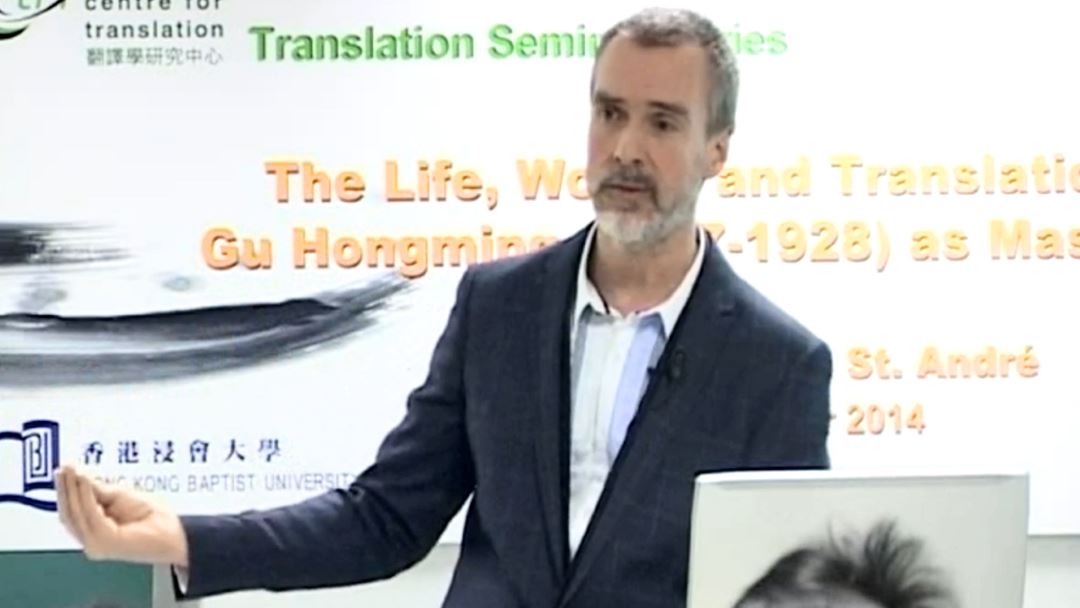
The Life, Works, and Translations of Gu Hongming (1857-1928) as Masquerade
2014 | 123 mins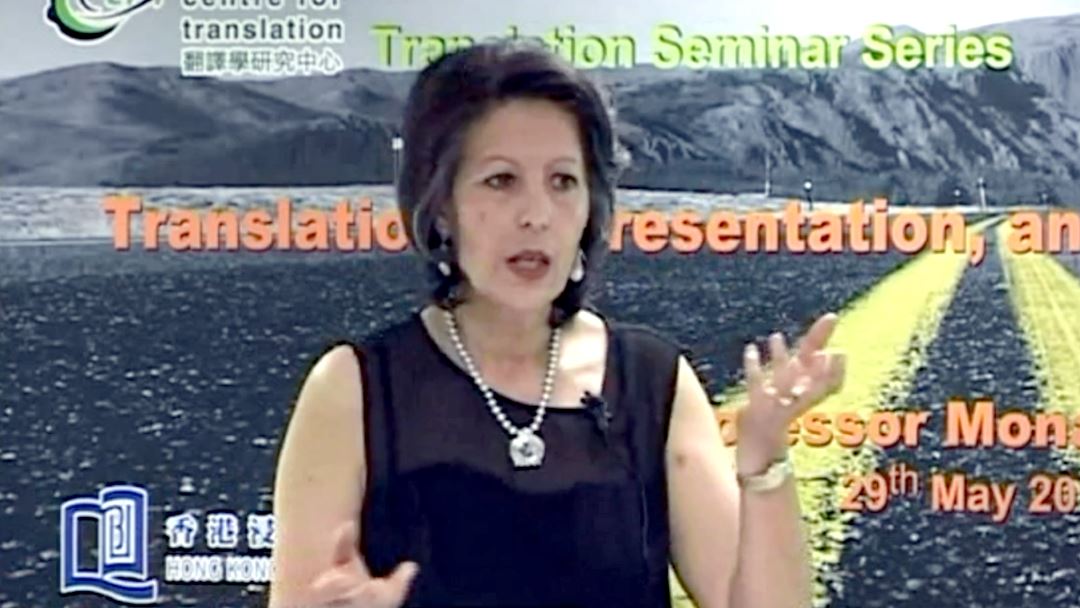
Translation, Representation, and Narrative Performance
2014 | 73 mins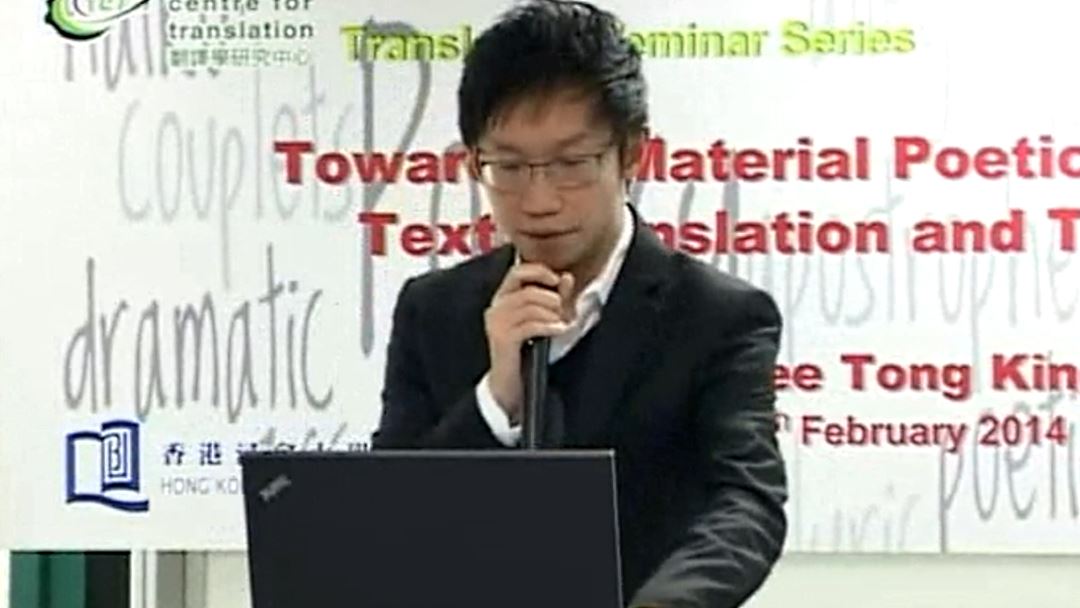
Towards a Material Poetics in Chinese : Text, Translation and Technology
2014 | 112 mins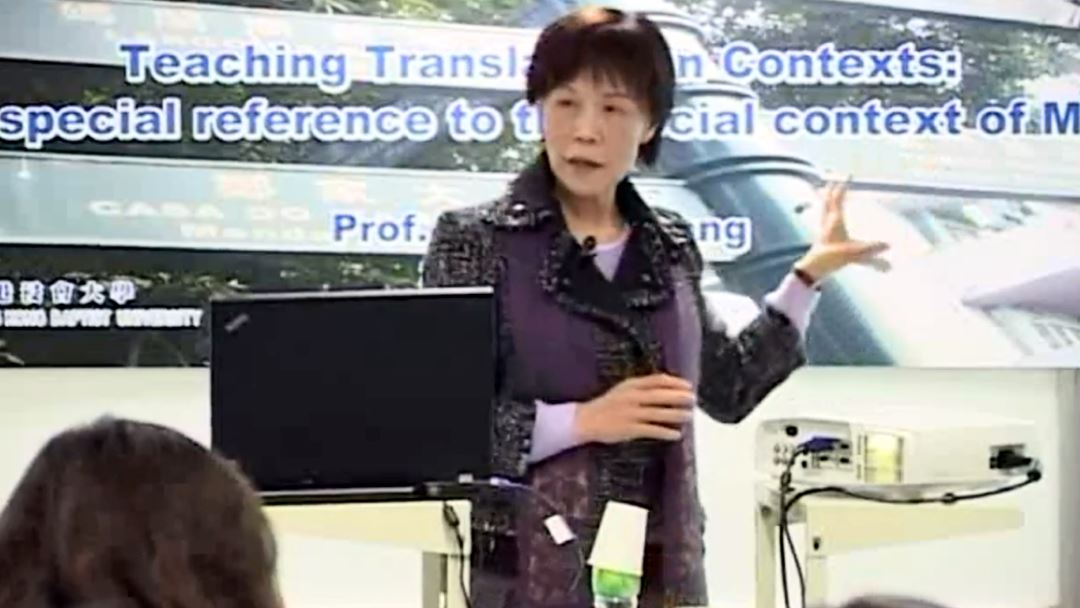
Teaching Translation in Contexts : With Special Reference to the Social Context of Macao
2014 | 74 mins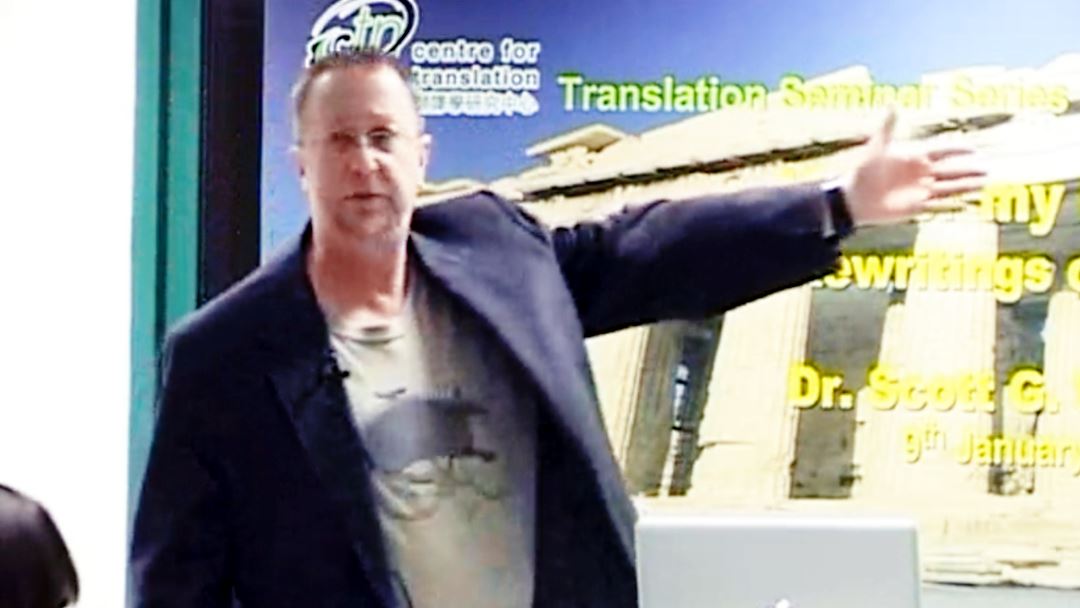
Homer my Homey: Transatlantic Rewritings of the Iliad and Odyssey
2014 | 104 mins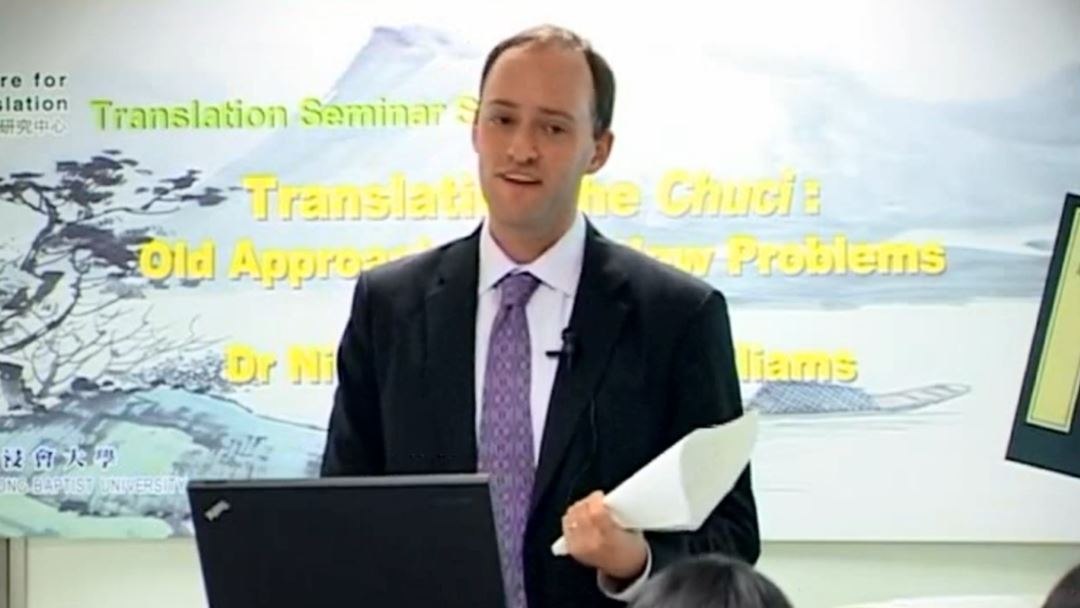
Translating the Chuci : Old Approaches and New Problems
2013 | 107 mins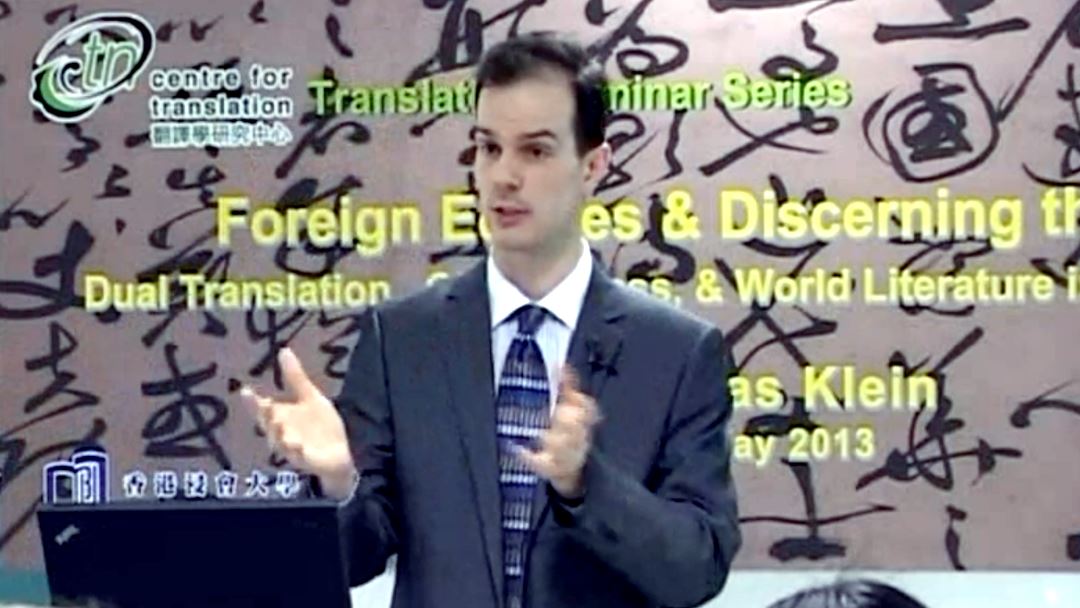
Foreign Echoes and Discerning the Soil : Dual Translation, Chineseness, and World Literature in Chinese Poetry
2013 | 110 mins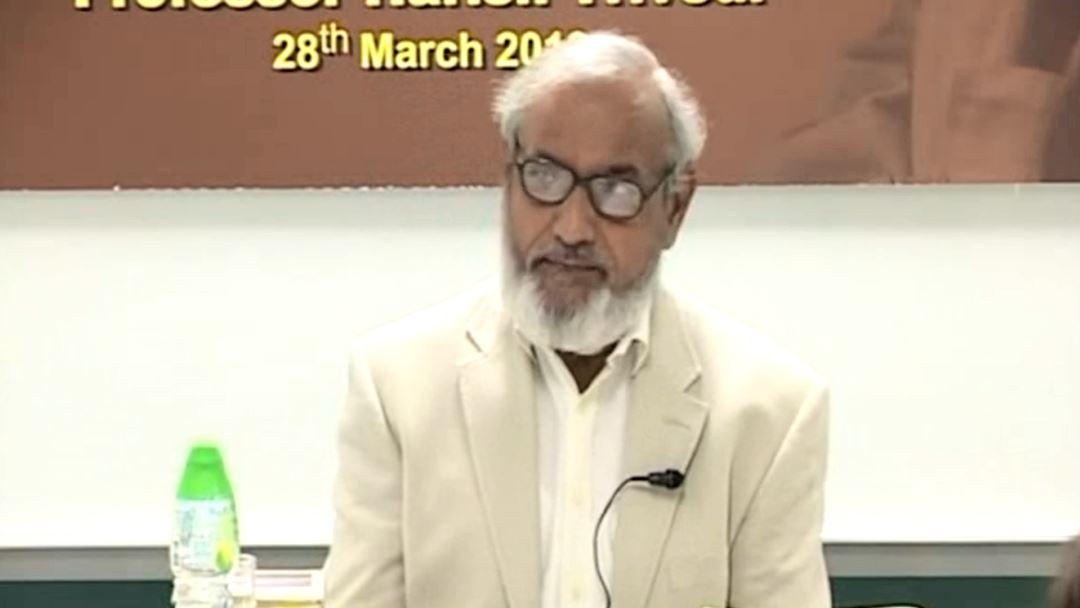
Self-Translation and the Nobel Prize: 100 years of Tagore's Gitanjali
2013 | 123 mins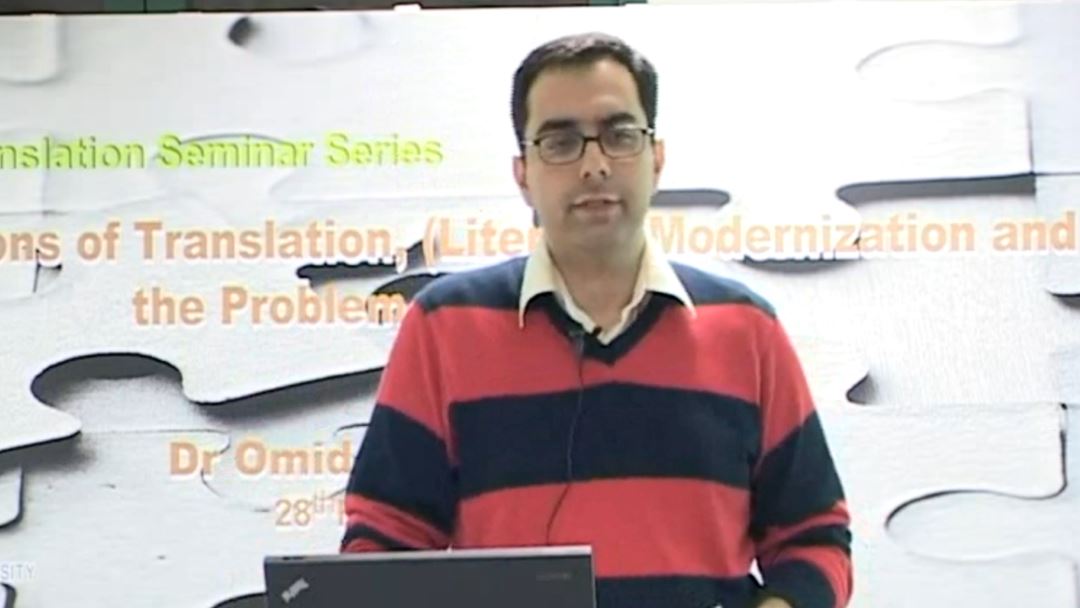
Institutions of Translation, (Literary) Modernization and the Problem of Knowledge
2013 | 86 mins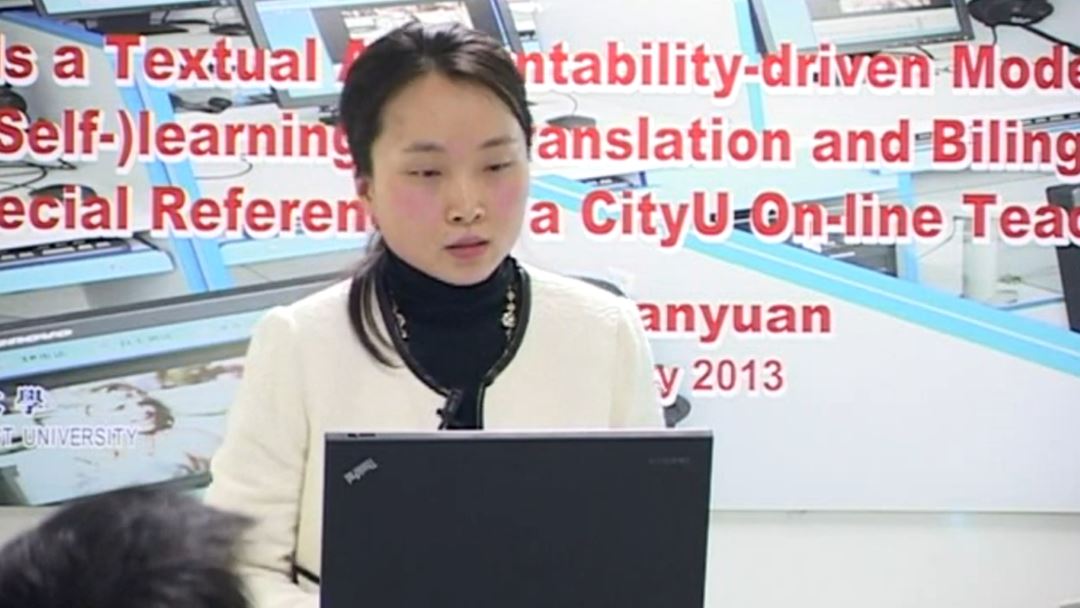
Towards a Textual Accountability-driven Mode of Teaching and (Self-)learning for Translation and Bilingual Writing: With Special Reference to a CityU On-line Teaching Platform
2013 | 123 mins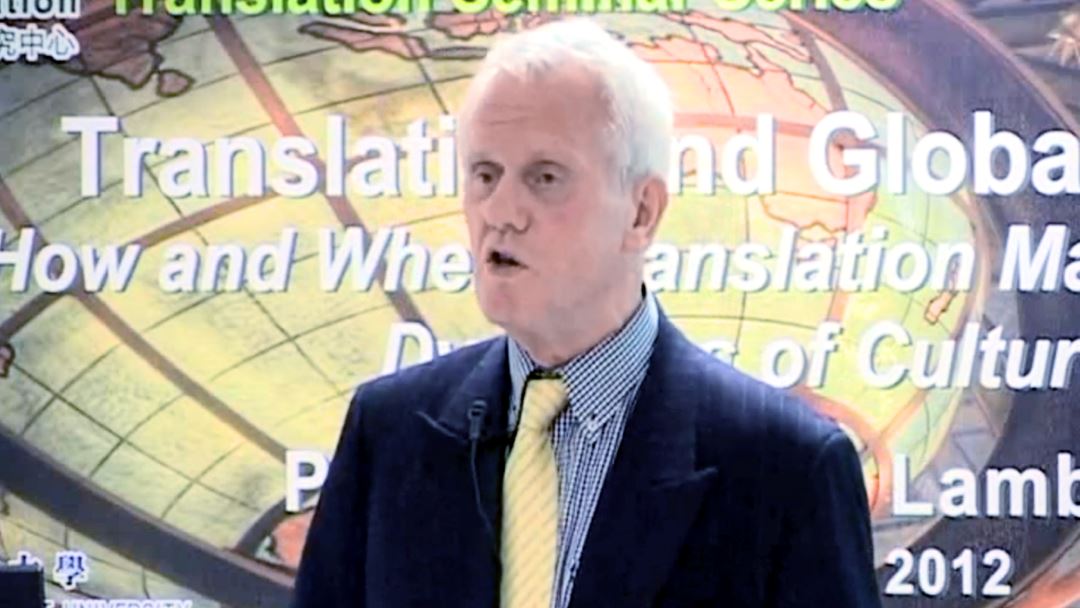
Translation and Globalization : Why, How and Where Translation May be a Key to the Dynamics of Culture
2012 | 140 mins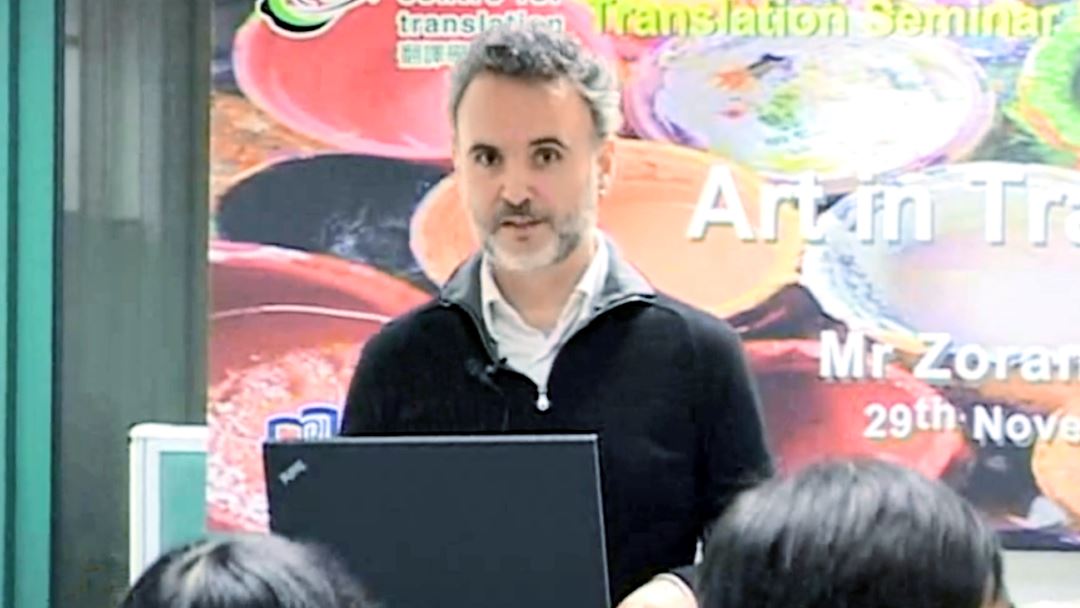
Art in Translation
2012 | 102 mins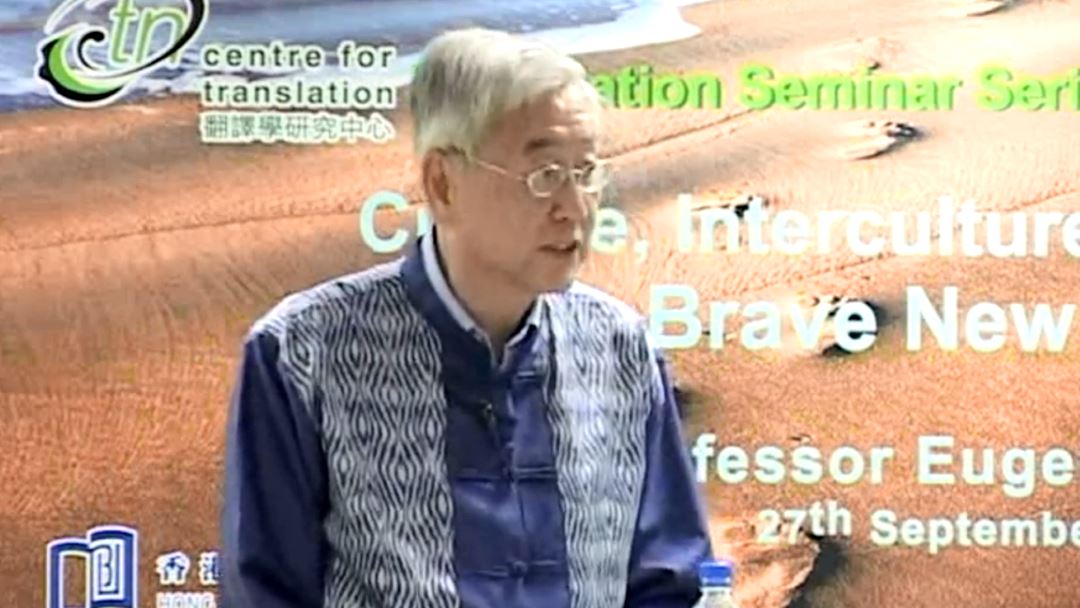
Culture, Interculture, Intraculture : Brave New World
2012 | 106 mins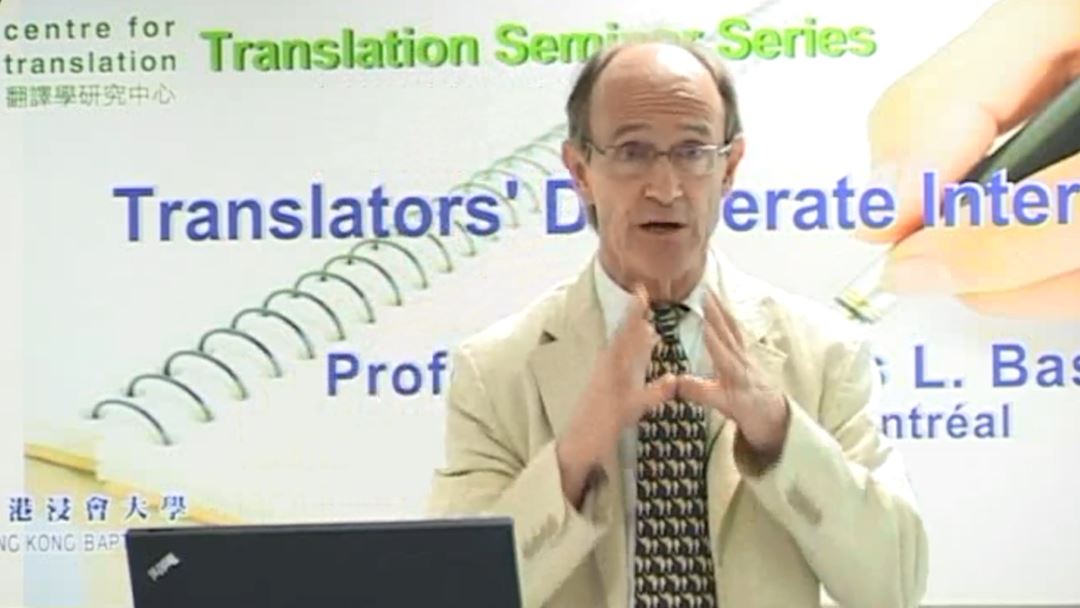
Translators' Deliberate Interventions
2012 | 124 mins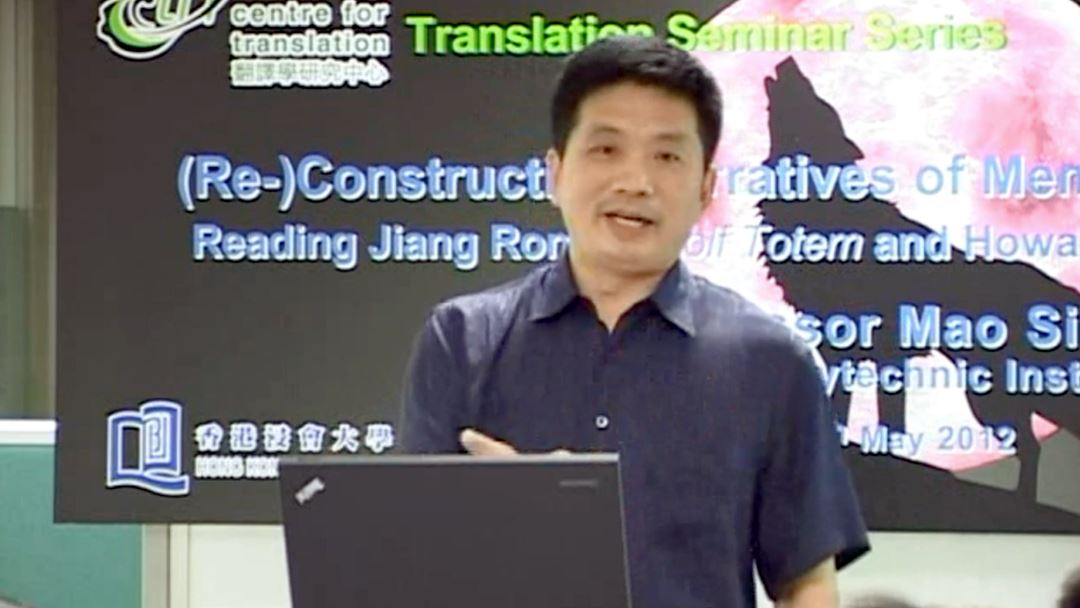
(Re-)Constructing Narratives of Memory, Culture and Myth : Reading Jiang Rong's Wolf Totem and Howard Goldblatt's Translation
2012 | 119 mins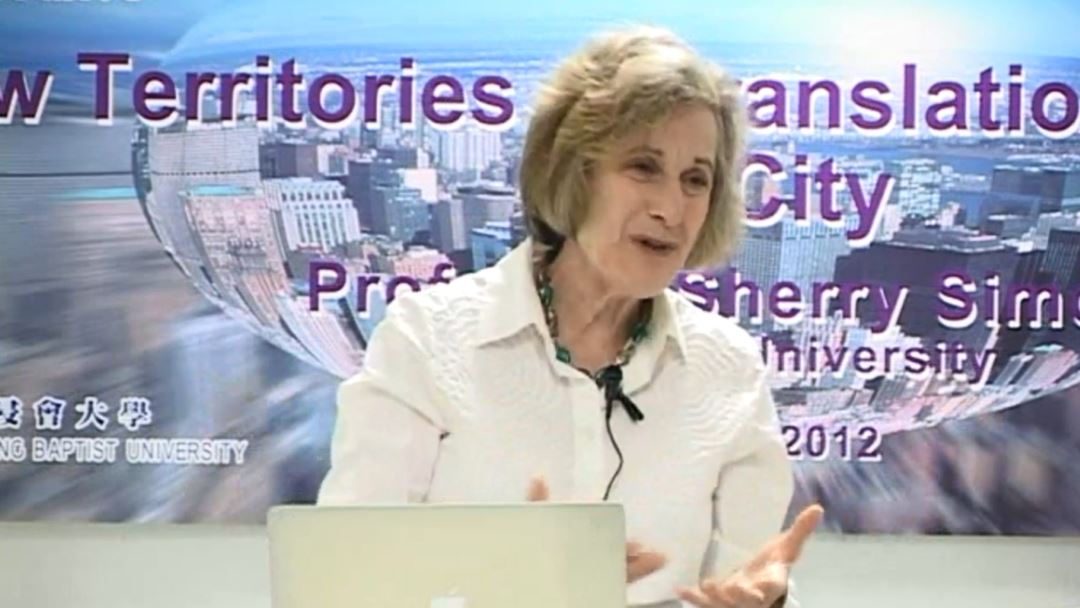
New Territories of Translation Research: the City
2012 | 106 mins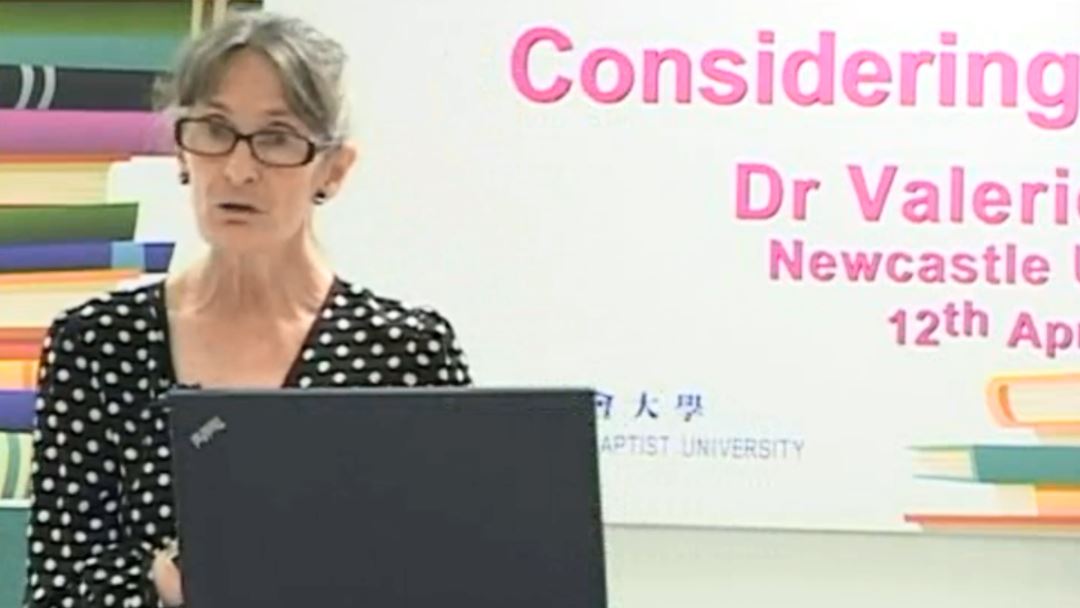
Considering the Reader
2012 | 121 mins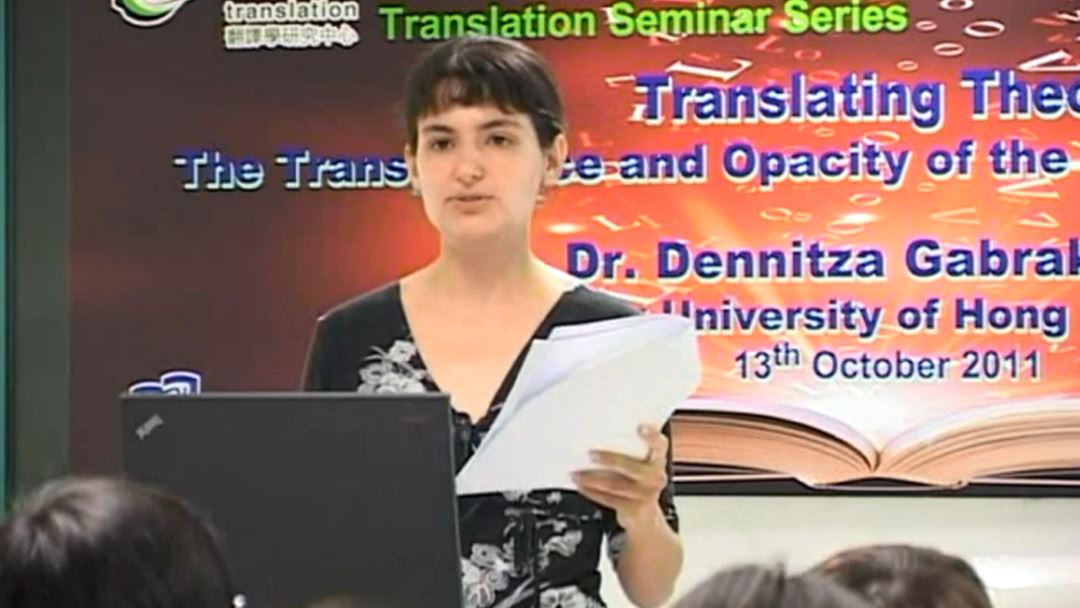
Translating Theory: The Transparence and Opacity of the Japanese Intellectual
2011 | 109 mins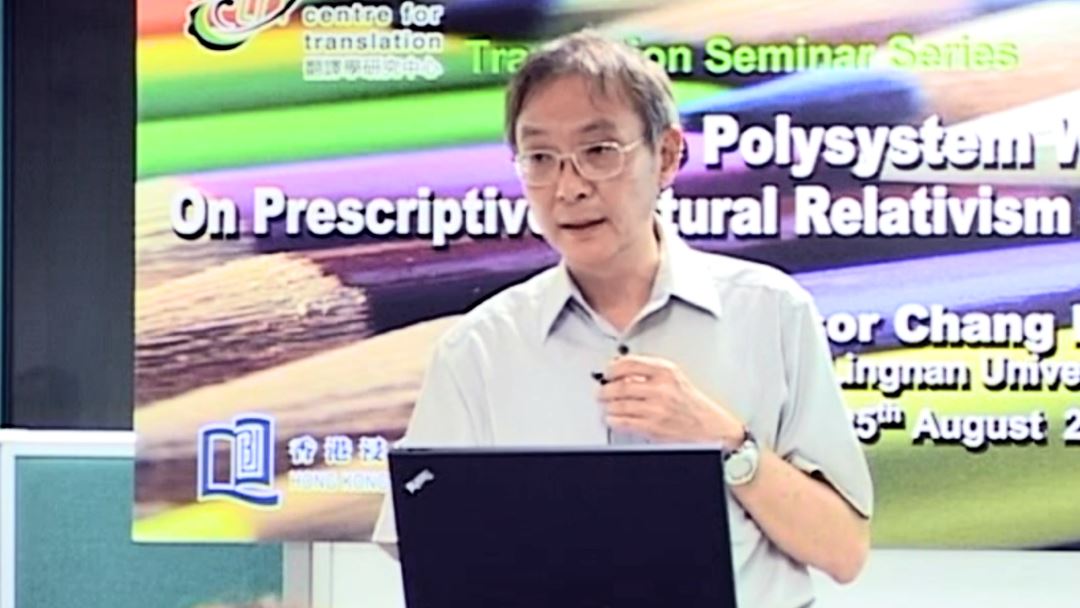
The Polysystem Writes back: On Prescriptive Cultural Relativism and Radical Postcolonialism
2011 | 111 mins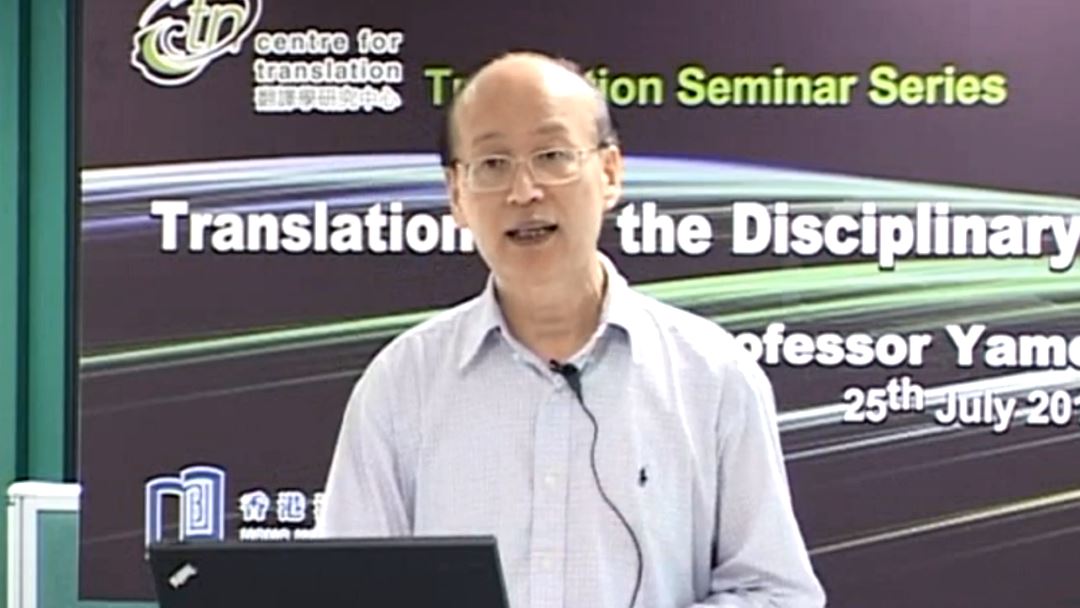
Translation and the Disciplinary Development of Rhetoric
2011 | 116 mins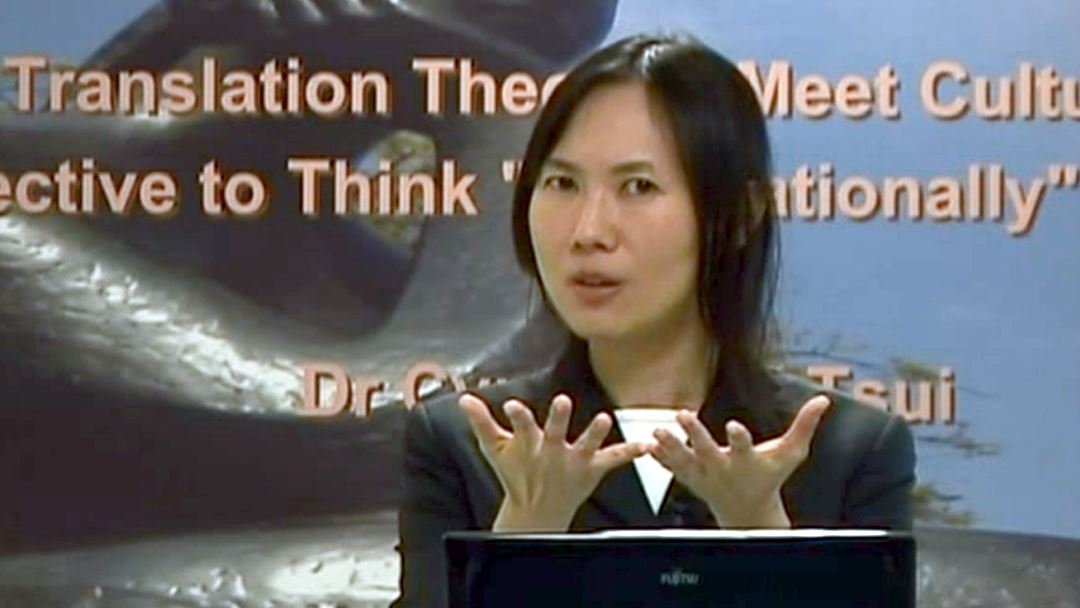
When Translation Theories Meet Cultural Studies : A New Perspective to Think "Translationally" in Cultural Criticism
2011 | 122 mins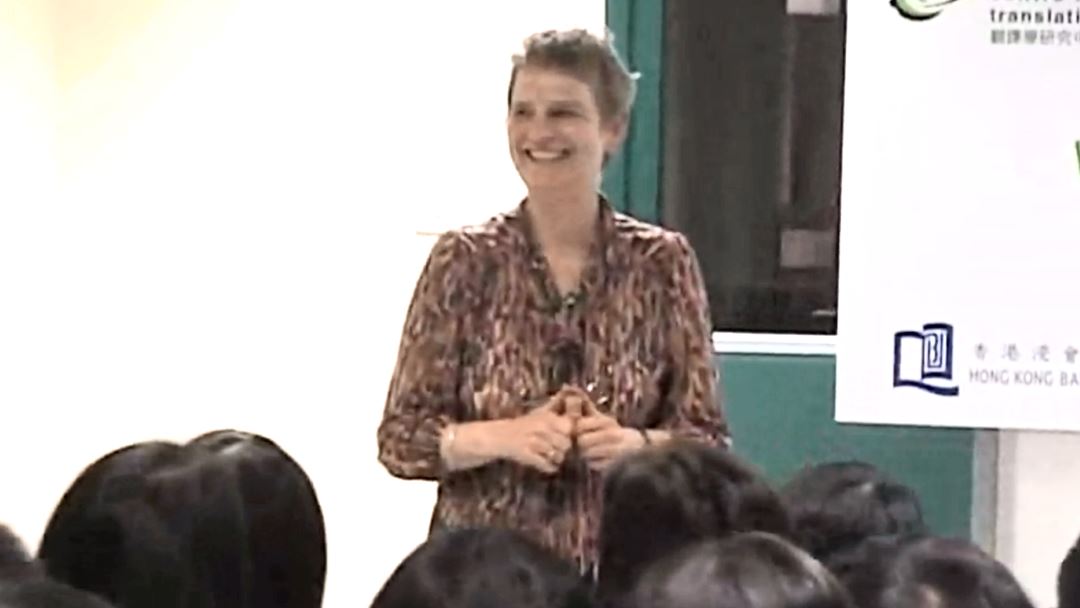
What is Translator Competence?
2011 | 125 mins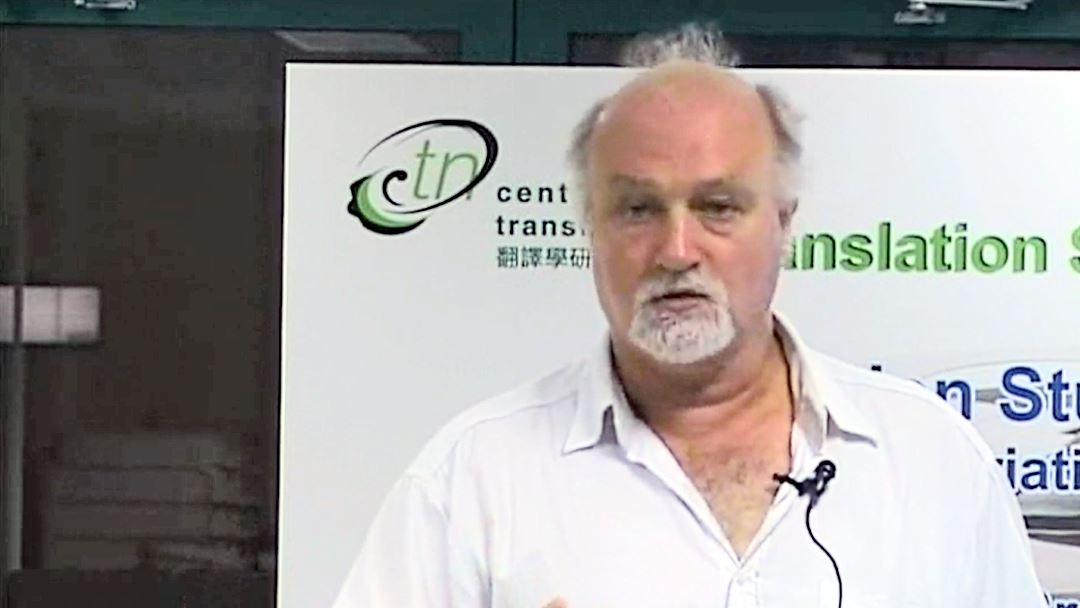
Translation Studies and Adaptation Studies: Appropriation, Recreation and Cannibalism
2011 | 112 mins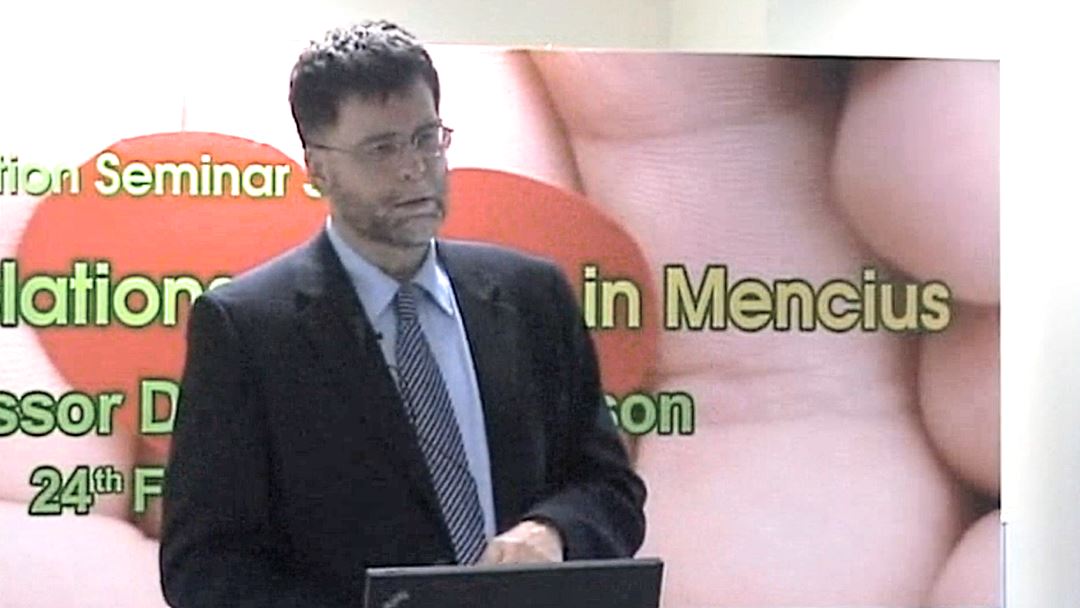
English Translations of ren 仁 in Mencius
2011 | 120 mins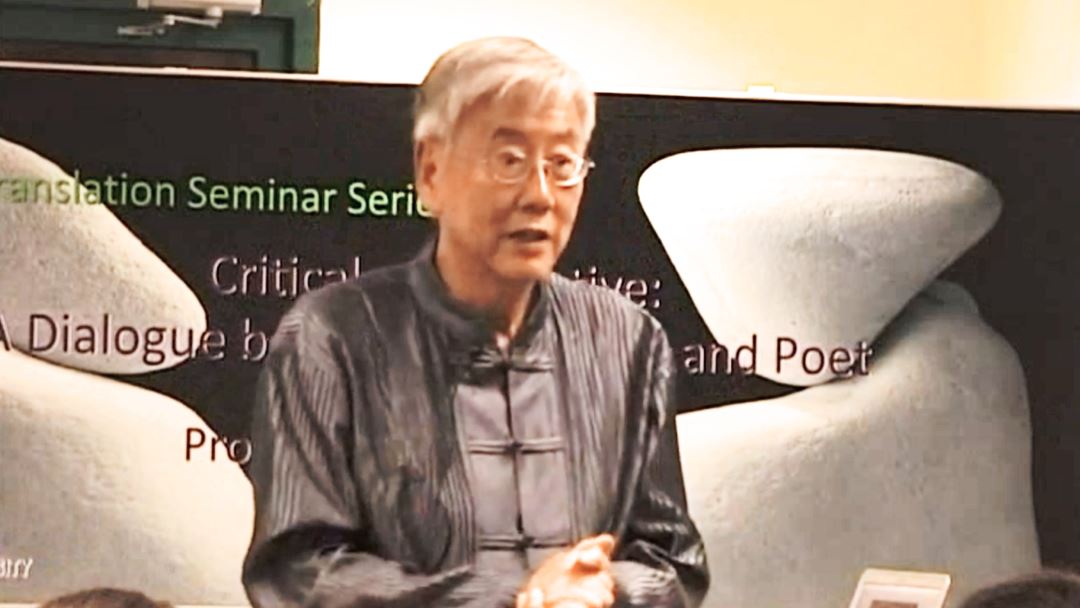
Critical and Creative : A Dialogue Between Translator and Poet
2010 | 105 mins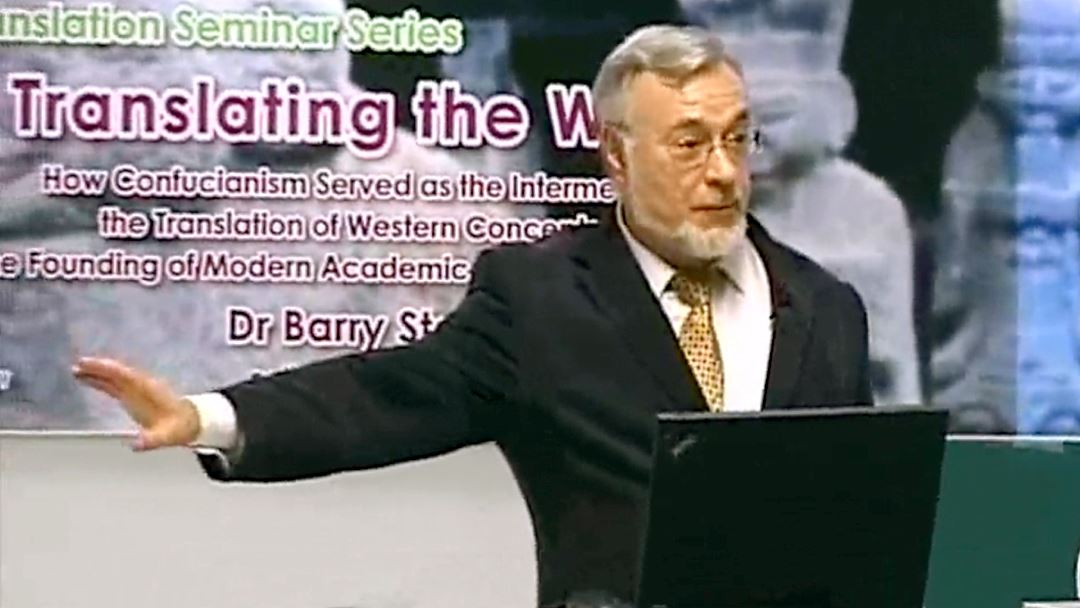
Translating Western Legal Concepts in Japan and China in the 1860s and 1870s
2010 | 113 mins
Translation as Relation
2010 | 111 mins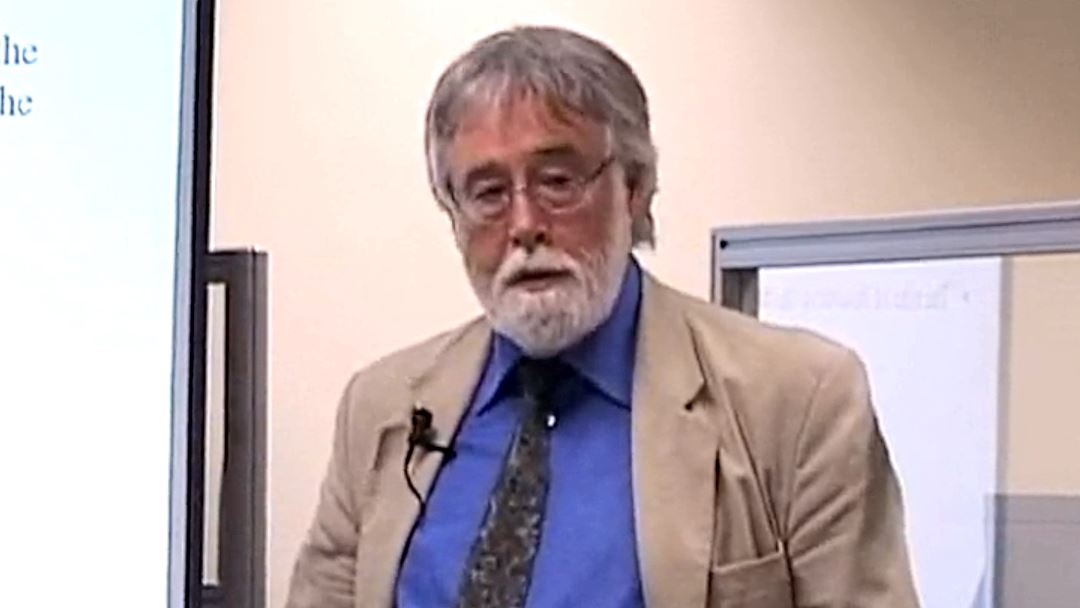
'British to my backbone tongue': The construction and deconstruction of a British colonial discourse in China and Ireland
2009 | 124 mins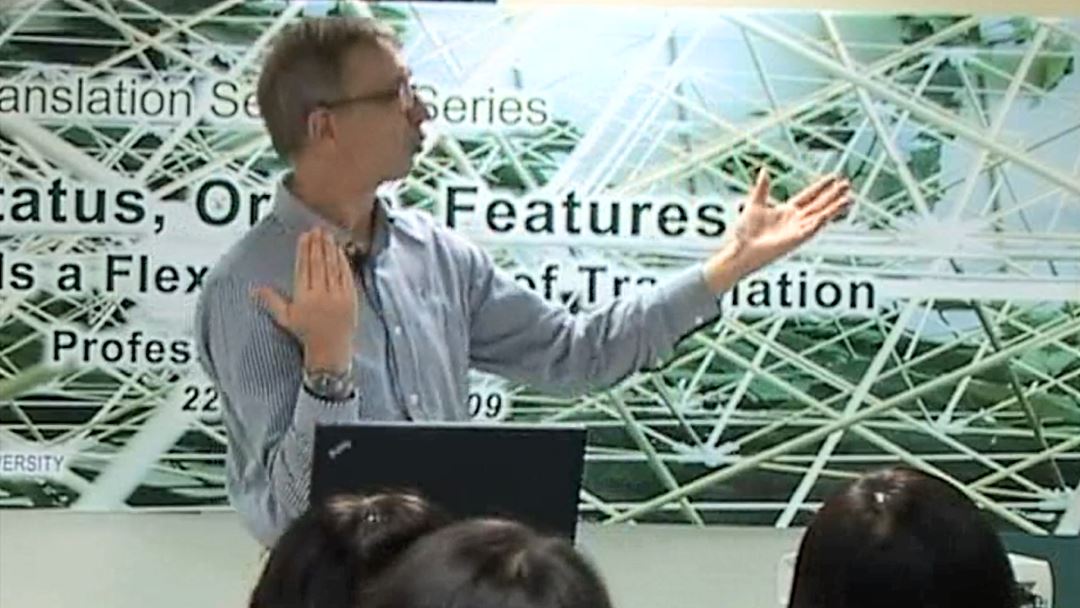
Status, Origin, Features : Towards a Flexible Model of Translation
2009 | 114 mins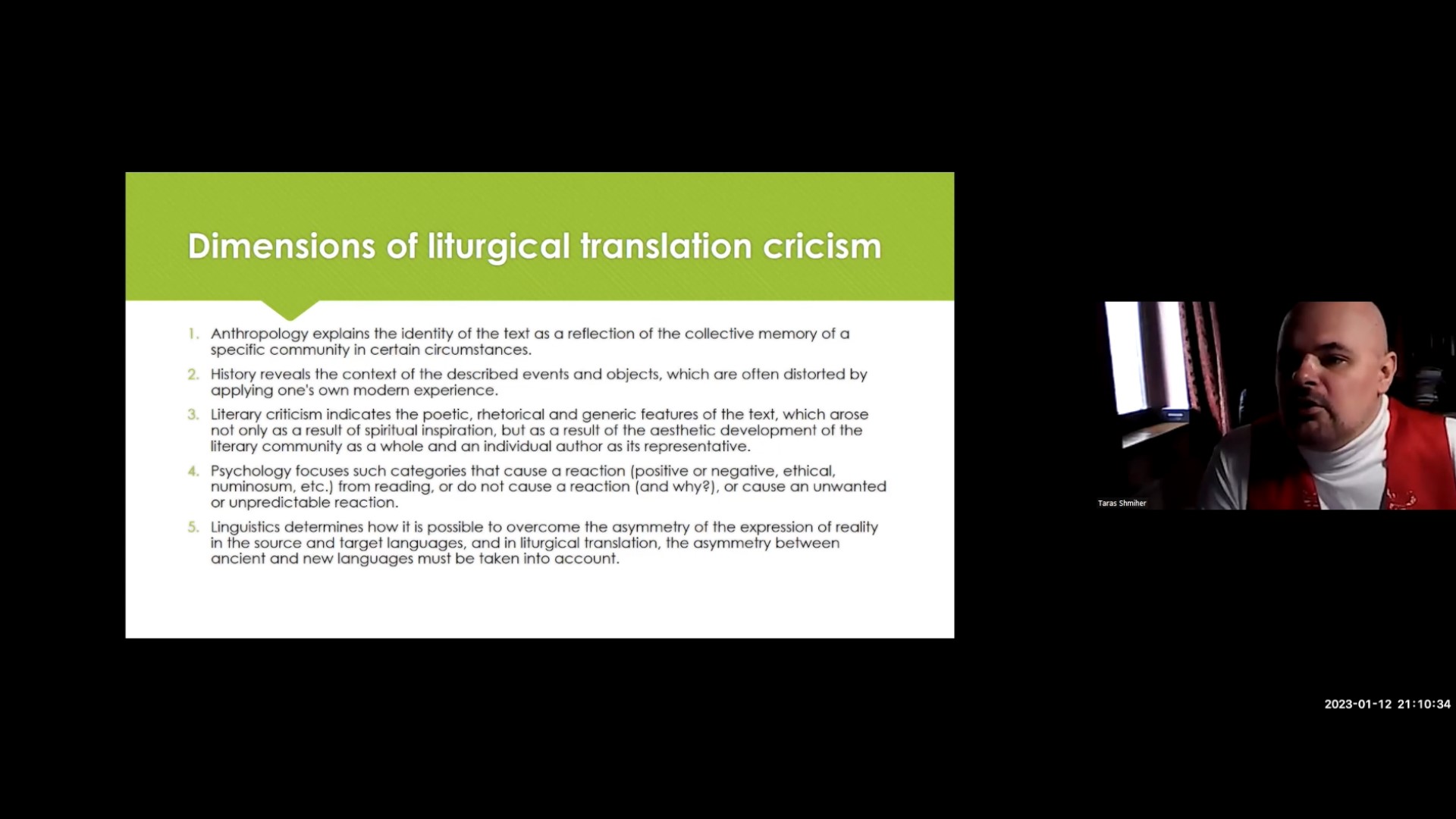
Liturgical Translation as a Domain of Translation Studies
2023 | 82 mins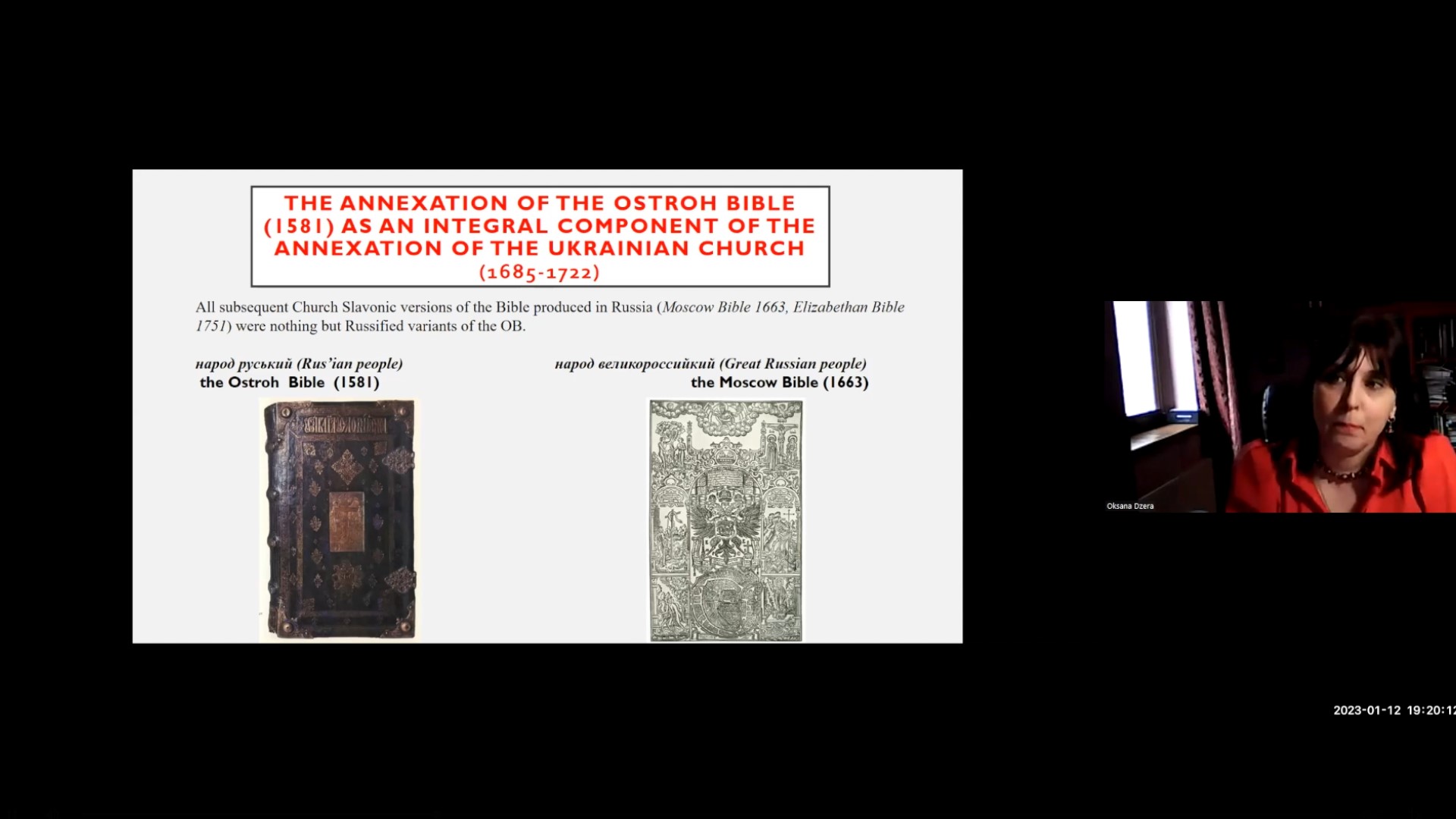
Ukrainian Bible Translation: The Case of Resistance and Exile
2023 | 70 mins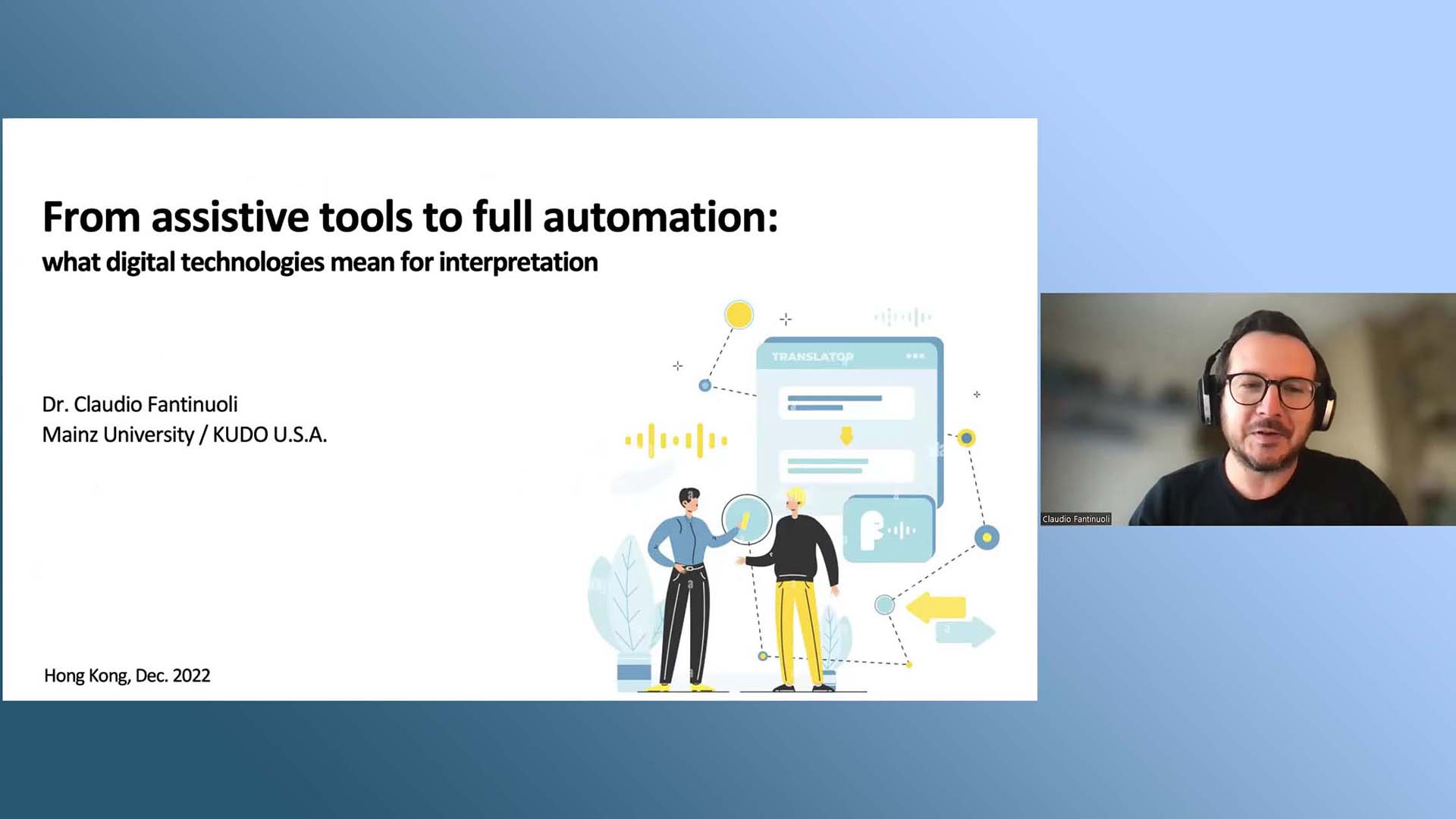
From Assistive Tools to Full Automation: What Digital Technologies Mean for Interpretation
2022 | 68 mins






